- Home
- people
- faculty trainer directory
MSTP trainers directory
Welcome to the Penn MSTP Faculty Trainer Directory
Each of the Penn faculty members included in this directory has made an explicit commitment to good mentorship practices in the training of future physician-scientists in Penn’s MD/PhD and VMD/PhD programs. The directory exists to assist recently-arrived students identify potential mentors for research rotations and thesis projects. The directory is also here to help applicants to the MSTP learn more about Penn and the faculty who work here. Many of the faculty included in the directory either have or have had MD/PhD and VMD/PhD students as part of their research teams. Others would very much like to, but not every Penn faculty member who would make a splendid thesis mentor is currently included. Current students should use this directory in combination with other sources of information and advice, especially from their graduate programs. Faculty updates should be sent to Hope Charney (Hope.Charney@Pennmedicine.upenn.edu). Penn faculty who are not currently listed but would like to be should contact Skip Brass and check out the MSTP or VMD/PhD website for more information about the program, the students who are in it, and the careers of our alumni.
- Skip Brass, MD, PhD, Associate Dean and Director of the Penn MSTP (brass@pennmedicine.upenn.edu)
Showing {startItem} to {endItem} of {itemsNumber} matching trainers
Geoffrey K. Aguirre, MD, PhD
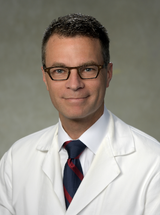
Degrees:
BA (Politics), Princeton University, 1992. PhD (Neuroscience), University Of Pennsylvania, 1999. MD, University Of Pennsylvania, 2000. Neurology Residency, Hospital of the University of Pennsylvania, 2004.
Research Interests:
I relate human perception to the structure and function of the visual pathway. We make use of quantitative modeling of retinal and brain imaging, with applications to ophthalmologic and neurologic disease.
Clinical Specialties:
Behavioral neurology
Keywords: Vision, visual cortex, functional MRI, retina, photophobia, migraine
Office Address:
512 Goddard Building
3710 Hamilton Walk
Philadelphia PA, 19104
Email
GKAguirre Lab
Mentor Training Completed
Unconscious Bias Trained
Grad Group Affiliations: NGG, Psychology
Languages Spoken: English
Rebecca Ahrens-Nicklas, MD, PhD
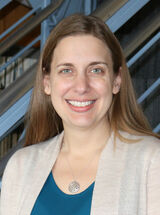
Degrees:
BS (Pharmacology) Duke University, 2003. PhD (Physiology & Biophysics) Weill Cornell Medical College, 2010. MD (MD/PhD Program) Weill Cornell/ Rockefeller/Sloan-Kettering, 2011.
Research Interests:
The Ahrens-Nicklas lab works to develop better treatments for patients with rare, inherited biochemical disorders of the brain. We utilize genetic, biochemical and electrophysiologic techniques to both elucidate disease mechanisms and guide development of novel therapies.
Clinical Specialties:
Pediatric Genetics
Keywords: Genetics, inborn errors of metabolism, neurogenetics, molecular therapeutics, gene therapy
Office Address:
5014 Colket Translational Research Building
Children's Hospital of Philadelphia
3501 Civic Center Blvd
Philadelphia, PA 19104
Email
Ahrens-Nicklas Laboratory
Mentor Training Completed
Unconscious Bias Trained
Grad Group Affiliations: CAMB (Cell and Molecular Biology), NGG (Neuroscience Graduate Group)
Languages Spoken: English
Steven M. Albelda, MD
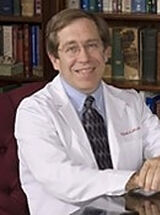
Degrees:
B.A. (Chemistry), Williams College, 1975. M.D., University Of Pennsylvania, 1979.
Research Interests:
1. CAR T Cells Targeting Fibroblast Activation Protein
2. Augmentation of CAR T cells Targeting Mesothelin
3. Development of an augmented "off the shelf" NK Cell CAR Line
4. Development of human-based models of immunotherapy (pleural effusions, tissue slices)
5. Generating predictors of response to checkpoint therapy in Lung Cancer
6. Immunobiology of Mesothelioma and Lung
Keywords: lung cancer, mesothelioma, tumor immunology, CAR T cells
Office Address:
228 Stemmler Hall
3450 Hamilton Walk
Philadelphia PA, 19104
(215) 573-9933
Email
Albelda Lab
Unconscious Bias Trained
Grad Group Affiliations: CAMB (Cell and Molecular Biology)
Languages Spoken: English
Stewart A. Anderson, MD
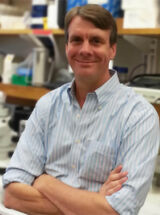
Degrees:
BA (Neuroscience And Psychology), Amherst College, Amherst, MA, 1984. MD (Medicine), University Of Connecticut, Storrs, CT, 1989.
Research Interests:
Our main focus is the neurobiological underpinnings of schizophrenia, autism, and epilepsy. We study these underpinnings using mouse models of brain development as well as human stem cell derived excitatory and inhibitory neurons, astrocytes, microglia, and blood brain barrier-like cells. Recently, we have been study the role of mitochondrial energetics in variable penetrance for schizophrenia in the 22q11.2 deletion syndrome. We also have numerous collaborations, including sodium channel mutation related epilepsy, energetics of synaptic vesicle cycling in human neurons, interneuron-cell based therapy for glioblastoma, role of blood brain barrier in neuropsychiatric illness, and the interaction of cannabinoids with HIV in human stem cell derived microglia.
Keywords: Stem cells, Forebrain Development, Schizophrenia, Mitochondria, Interneurons
Office Address:
Abramson Pediatric Research Center
3615 Civic Center Blvd
Philadelphia, PA 19104
(215) 590-6527
Email
Anderson Lab
Mentor Training Completed
Unconscious Bias Trained
Grad Group Affiliations: CAMB (Cell and Molecular Biology)
Languages Spoken: Spanish, English
Montserrat C. Anguera, Ph.D

Degrees:
B.A (Environmental Chemistry) University of California, San Diego, 1998. Ph.D (Biochemistry, Molecular and Cellular Biology) Cornell University, 2004
Research Interests:
Epigenetics, X-Chromosome Inactivation, Xist RNA, female-biased autoimmunity, epigenetic analyses using female lymphocytes, allele-specific analyses, RNA/DNA FISH, microscopy, long noncoding RNAs
Keywords: X-chromosome Inactivation, Xist RNA, epigenetics, heterochromatin, female-biased autoimmunity, B cell development, B cell quiescence and activation, T cell quiescence and activation
Office Address:
Penn Vet
3800 Spruce St, 390EB
Philadelphia, PA 19104
Email
Anguera Lab
Mentor Training Completed
Unconscious Bias Trained
Grad Group Affiliations: IGG (Immunology Graduate Group), G&E (Genetics and Epigenetics)
Languages Spoken: Spanish, English
Zoltan Pierre Arany, MD, PhD
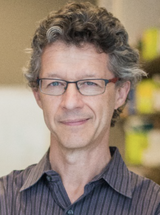
Degrees:
BA (Biochemical Sciences (Summa Cum Laude), Harvard College, 1989. PhD (Biological And Biomedical Sciences)Harvard Graduate School, 1995. MD (Medicine), Harvard Medical School, 1998.
Research Interests:
The Arany lab focuses on cardiovascular metabolism. Such unfocused focus has led us to study a wide range of projects in the heart, liver, fat, and many other tissues, and has led us to use all techniques we can get out hands on, including human genetics, genetically engineered mouse models, cell culture, metabolomics, in vivo isotope metabolic tracing, and many more. In essence, the lab aims to ask fundamental questions within the (wide) space of cardiovascular metabolism, and leverages all available state-of-the-art approaches to do so.
Clinical Specialties:
Cardiology.
Keywords: Metabolomics, heart failure, peripartum cardiomyopathy, genetics, diabetes, vascular biology, NAFLD/NASH, cardiac metabolism, senescence
Michael Atchison, PhD
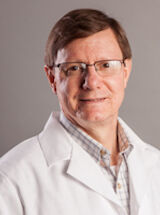
Degrees:
B.S. (Biology) SUNY at Albany, 1977. Ph.D. (Cell and Molecular Biology) New York University School of Medicine, 1983.
Research Interests:
The Atchison laboratory studies the molecular mechanisms responsible for transcriptional regulation, epigenetic processes, and the control of B and T cell lineage development.
Keywords: Transcription, Epigenetics, Lineage Development, Long distance DNA interactions.
Office Address:
142 Rosenthal Building
3800 Spruce Street
Philadelphia PA, 19104
(215) 898-6428
Email
Atchison Lab
Mentor Training Completed
Unconscious Bias Trained
Grad Group Affiliations: CAMB (Cell and Molecular Biology), IGG (Immunology Graduate Group)
Languages Spoken: English
Joel Babdor, PhD
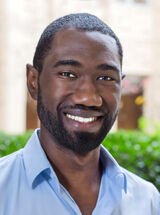
Degrees:
BS (Biology) Paris-EST Creteil University, 2008. MS (Immunology) Sorbone University, 2010. PhD (Immunology And Cell Biology) University Of Paris, 2014.
Research Interests:
The Precision Immunology and Microbiome Medicine laboratory delves into the intricate realms of Human Immunology, Microbiome dynamics, Autoimmunity, and Cancer Immunotherapy. Utilizing advanced Computational Immunology and Systems biology approaches, we decipher the dialogue between the immune system and and the microbiome. Our mission extends to the forefront of Precision Medicine, where we aim to tailor treatments to individual patients' unique profiles. Through groundbreaking research in Microbiome Medicine, we explore the symbiotic relationship between our bodies and the trillions of microbes inhabiting us, unlocking new avenues for therapeutic intervention.
Keywords: Human Immunology, Microbiome, Autoimmunity, Cancer Immunotherapy, Computational Immunology, Systems Immunology, Precision Medicine, Microbiome Medicine
Mentor Training Completed
Unconscious Bias Trained
Grad Group Affiliations: BGS (Biomedical Graduate Studies), IGG (Immunology Graduate Group), PGG (Pharmacology Graduate Group)
Languages Spoken: English, French
Will Bailis, PhD
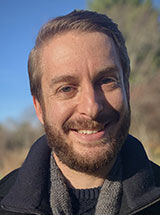
Degrees:
B.A. (Biochemistry) Vassar College, Poughkeepsie, NY, 2008. Ph.D. (Immunology) University Of Pennsylvania, Philadelphia, PA, 2014.
Research Interests:
The Bailis lab aims aims to understand how metabolism underlies immunology and disease, by controlling the biochemistry of cells and tissues. We do so using in vitro and in vivo CRISPR engineering of primary human and mouse immune cells. Together with next generation sequencing and metabolomics, this permits us to fully interrogate how metabolic networks control immune cell function. The long term goal of our work is to develop diet and metabolite based therapies.
Keywords: immunology, metabolism, T cell, epigenetics, post-transcriptional gene regulation, malnutrition, host-pathogen
Office Address:
1211B Abramson Research Center
3615 Civic Center Blvd
Philadelphia, PA 19104
Email
Bailis Lab
Mentor Training Completed
Unconscious Bias Trained
Grad Group Affiliations: CAMB (Cell and Molecular Biology), IGG (Immunology Graduate Group)
Languages Spoken: English
Amit Bar-Or, MD

Degrees:
BSc (Biology And Psychology), McMaster University, 1988. MD (Medicine), McGill University, 1993. Medicine Internship and Neurology Residency, MGH, Harvard University, 1997 Neuroimmunology fellowship, Harvard/MIT, 2000
Research Interests:
Cellular immunology
Immune regulation
Immune neural and immune glial interactions
Immune therapies
Biomarker development
Clinical Specialties:
MS and related disorders.
Keywords: Neuroinflammation, Neuroimmunology, immune regulation, immune-neural interactions, multiple sclerosis and related disorders
Mentor Training Completed
Unconscious Bias Trained
Grad Group Affiliations: NGG (Neuroscience Graduate Group)
Languages Spoken: English
Yoseph Barash, PhD

Degrees:
B.Sc. (Computer Science And Physics) Hebrew University, Jerusalem, Israel., 1998. Ph.D. (Machine Learning, Computational Biology) School Of Computer Science & Engineering Hebrew University, Jerusalem, Israel, 2006.
Research Interests:
The lab develops machine/deep learning algorithms that integrate large genomic/genetic data (RNASeq, CLIPSeq , WGS, etc.) to infer RNA biogenesis and function as these relate to human disease, followed by experimental verifications of inferred mechanisms. Research projects in the lab involve a mix of comp methods development, Genomics analysis, new assay tech development, and biochemical wet lab experiments.
Keywords: Computational biology, machine/deep learning, probabilistic models, RNA processing, alternative-splicing, post-transcriptional regulation, genomics, high-throughput sequencing analysis.
Office Address:
Richards Medical Research Laboratories, D205
3700 Hamilton Walk
Philadelphia PA, 19104
Email
BioCiphers
Mentor Training Completed
Unconscious Bias Trained
Grad Group Affiliations: CAMB (Cell and Molecular Biology), GCB (Genomics and Computational Biology)
Languages Spoken: English
Caroline Bartman, PhD
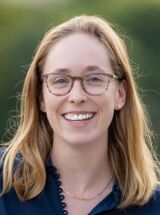
Degrees:
AB (Biology; Immunology Specialization) University Of Chicago, 2012. PhD (Immunology) University Of Pennsylvania, 2018.
Research Interests:
The Bartman lab studies how metabolic fluxes change in inflamed tissues and in tumors, using in vivo isotope tracing and mass spec metabolomics. We try to identify fluxes altered in disease, and then target those fluxes using genetic or pharmacologic approaches to test possible therapeutic approaches.
Keywords: Metabolic flux, cancer metabolism, immunometabolism, mass spectrometry,The Bartman lab studies how metabolic fluxes change in inflamed tissues and in tumors, using in vivo isotope tracing and mass spec metabolomics. We try to identify fluxes altered in disease, and then target those fluxes using genetic or pharmacologic approaches to test possible therapeutic approaches. metabolomics
Office Address:
Smilow Center for Translational Research, 9-136
3400 Civic Center Boulevard
Philadelphia PA, 19104
Email
Bartman Lab
Grad Group Affiliations: BMB (Biology and Molecular Biophysics), IGG (Immunology Graduate Group), PGG (Pharmacology Graduate Group)
Languages Spoken: English
Marisa S. Bartolomei, PhD
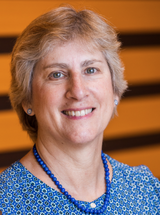
Degrees:
B.S. (Biochemistry) University Of Maryland, College Park, MD, 1982. Ph.D. (Biochemistry) Johns Hopkins University School Of Medicine, Cellular & Molecular Biology Training Program (Dr. Jeffry Corden), 1987.
Research Interests:
The research in my laboratory focuses on the study of genomic imprinting and X inactivation in mice.
Keywords: genomic imprinting, X inactivation, DNA methylation, epigenetics, environment.
Office Address:
Smilow Center for Translational Research, 9-122
3400 Civic Center Boulevard
Philadelphia PA, 19104
(215) 898-9063
Email
Mentor Training Completed
Unconscious Bias Trained
Grad Group Affiliations: CAMB (Cell and Molecular Biology), NGG (Neuroscience Graduate Group), PGG (Pharmacology Graduate Group)
Languages Spoken: English
Danielle S. Bassett, PhD
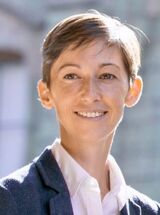
Degrees:
Ph.D., University of Cambridge (2009) C.P.G.S., University of Cambridge (2005) B.S., Pennsylvania State University, Schreyer Honors College (2004)
Research Interests:
Cognitive Neuroscience
Computational Modeling
Control of Action
Decision Processes
Memory and Learning
Email
https://complexsystemsupenn.com
Mentor Training Completed
Grad Group Affiliations: BE (Bioengineering)
Languages Spoken: English
Paul Bates, PhD
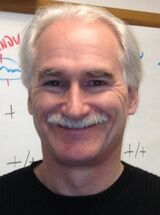
Degrees:
B.S. (Biochemistry) Pennsylvania State University, 1979. Ph.D. (Biochemistry) Michigan State University, 1985.
Research Interests:
The Bates lab is interested in the interactions between viruses and their host cells. We use a combination of molecular, cell biological, and genetic tools to understand how viruses invade host cells and evade host defenses with emphasis on emerging viral pathogens. We also use technologies such as modified mRNA and recombinant viruses to generate vaccines for highly pathogenic viruses.
Keywords: Virus entry, virus-host interactions, ebolavirus, hantavirus, SARS, Tetherin, mRNA vaccines
Office Address:
303A Johnson Pavilion
3610 Hamilton Walk
Philadelphia PA, 19104
(215) 573-3509
Email
Mentor Training Completed
Unconscious Bias Trained
Grad Group Affiliations: CAMB (Cell and Molecular Biology)
Languages Spoken: English
Gregory Beatty, MD, PhD
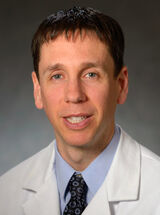
Degrees:
BS Bucknell University, 1995. PhD University Of Pennsylvania, 2000. MD University Of Pennsylvania, 2004.
Research Interests:
The Beatty Laboratory incorporates both basic science research and clinical investigation to define strategies for leveraging the immune system for the treatment of cancer. Our mission is to define mechanisms of resistance and response to immunotherapy in an effort to design effective strategies to condition tumors and patients for enhanced therapeutic responsiveness.
Clinical Specialties:
Medical Oncology with a focus on clinical trials related to pancreatic cancer.
Keywords: cancer immunotherapy, tumor microenvironment, T cells, macrophages, pancreatic cancer, liver biology
Office Address:
PCAM South Pavilion, Rm 8-107
3400 Civic Center Blvd
Philadelphia, PA 19104
Email
Beatty Lab
Mentor Training Completed
Unconscious Bias Trained
Grad Group Affiliations: CAMB (Cell and Molecular Biology), IGG (Immunology Graduate Group)
Languages Spoken: English
Ed Behrens, MD
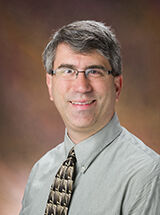
Degrees:
BA (Biology) The Johns Hopkins University, 1997. MD (Medicine) The University Of Pennsylvania School Of Medicine, 2002.
Research Interests:
The Behrens Laboratory is mainly focused on the understanding the pathogenesis of Cytokine Storm Syndrome, a common pathologic endpoint of a heterogeneous group of initiating diseases. Cytokine Storm Syndrome results in multi-organ failure and a stereotypical immune response including increased serum ferritin and Interferon gamma that leads to the organ failure itself. The lab is interested in dissecting the initiating, propagating, and regulatory factors that determine the pace and outcome of cytokine storm. This is done using a number of different murine models including perforin deficient mice, repeated TLR9 agonist injections, and other murine systems of systemic inflammation. The ultimate goal of these investigations is to improve the lives of patients that suffer from cytokine storm syndromes by developing strategies for treatment and prevention.
Clinical Specialties:
Pediatric Rheumatology
Keywords: Dendritic Cell, Toll-like receptor, Macrophage Activation Syndrome, Hemophagocytic Lymphohistiocytosis, Antigen Presentation
Office Address:
Room 1107A ARC
3615 Civic Center Blvd
Philadelphia, PA 19107
Email
Mentor Training Completed
Unconscious Bias Trained
Grad Group Affiliations: CAMB (Cell and Molecular Biology), IGG (Immunology Graduate Group)
Languages Spoken: English
Nicole Belle, MD, PhD

Degrees:
BA (Biochemistry) New York University 2005. MD, Washington University in St. Louis, 2013. PhD (Immunology) Washington University in St. Louis, 2013.
Research Interests:
The Belle lab studies the molecular pathways that facilitate cross talk between intestinal epithelial cells and immune cells in order to modulate the outcomes of infections, inflammatory processes and cancer. We use genetic mouse models, organoids and in vitro modeling to address the following broad questions:
- How does the intestinal epithelial layer repair itself after injury?
- How do epithelial cells prevent deleterious changes that lead to tumorigenesis in the face of chronic inflammation?
- How do epithelial cells influence the immune landscape?
Clinical Specialties:
Gastroenterology
Keywords: Intestinal epithelial cells, Repair and regeneration, Mucosal immunology
Office Address:
BRB II/III, Room 907
421 Curie Blvd.
Philadelphia, PA 19104
Email
Mentor Training Completed
Unconscious Bias Trained
Grad Group Affiliations: IGG (Immunology Graduate Group)
Languages Spoken: English
Shelley Berger, PhD

Degrees:
B.S. (Biology), University Of Michigan, Ann Arbor, MI, 1982. PhD (Cell & Molecular Biology), University Of Michigan, Ann Arbor, MI, 1987.
Roles:
Daniel S. Och University Professor
Research Interests:
Epigenetics and chromatin structure/function in genomic regulation; Post-translational modifications of histones and transcription factors; Biological problems: chromatin regulation of transcription; neuroepigenetics and behavioral epigenetics (human, mouse, ant); chromatin regulation in disease including cancer, senescence and aging, and neurodegeneration (cell models, mouse, human).
Keywords: epigenetics, chromatin, transcription, histone post-translational modifications, genome structure, p53 tumor suppressor
Office Address:
Smilow Center for Translational Research, Room 9-125
400 Civic Center Boulevard
Philadelphia PA, 19104
(215) 746-3106
Email
Berger Lab
Mentor Training Completed
Unconscious Bias Trained
Grad Group Affiliations: CAMB (Cell and Molecular Biology), GCB (Genomics and Computational Biology), BMB (Biology and Molecular Biophysics), NGG (Neuroscience Graduate Group), PGG (Pharmacology Graduate Group), Biology
Languages Spoken: English
Kara Bernstein, PhD
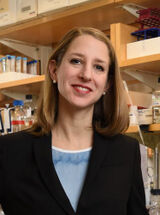
Degrees:
B.A. (Biology) Bryn Mawr College, 2000. M.Phil. (Genetics) Yale University, 2004. Ph.D. (Genetics) Yale University, 2006.
Research Interests:
Breast and ovarian cancer can be caused by a combination of our environmental exposures as well as our genetic make-up. Family history of breast and ovarian cancer can be used to predict whether or not an individual needs additional screening or testing. Our research focuses on proteins that contribute to breast and ovarian cancer development and studies how accurate repair of DNA double-strand breaks is regulated using the budding yeast and mammalian systems. We have been focusing on the DNA repair genes, the RAD51 paralogs, which when mutated lead to increased breast and ovarian cancer risk using genetic, biochemical, and cell biological approaches. By understanding RAD51 paralog molecular function, the our lab aims to determine individuals who are at risk for cancer development and how cancer risk is compounded upon exposure to environmental toxicants that damage DNA.
My lab studies mechanisms of cancer development and how misregulation of DNA repair genes contributes to genetic instability and tumorigenesis. Part of my lab uses mammalian cells to study the RAD51 paralogs, genes that are mutated in hereditary breast and ovarian cancer, to determine their molecular function and to analyze patient derived mutations for DNA repair defects using genetics, molecular biology, and cell biology techniques. The other part of my laboratory uses the budding yeast system to dissect RAD51 paralog molecular function using genetic, biochemical, and molecular biology techniques.
Keywords: Breast and Ovarian Cancer, DNA repair, Homologous Recombination, DNA replication, RAD51, RAD51 paralogs
(215) 746-6264
Email
Bernstein Lab
Mentor Training Completed
Unconscious Bias Trained
Grad Group Affiliations: CAMB (Cell and Molecular Biology), BMB (Biology and Molecular Biophysics)
Languages Spoken: English
Elizabeth Bhoj, MD, PhD
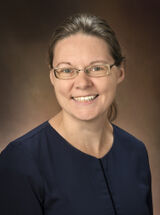
Degrees:
BS (Biology And Philosophy) The College Of New Jersey, 2002. PhD (Genetics) University Of Texas Southwestern Medical Center At Dallas, 2010. MD University Of Texas Southwestern Medical Center At Dallas, 2010. MTR (Translational Research ) University Of Pennsylvania, 2016.
Research Interests:
Our lab works in translational genetics to improve diagnosis and treatment through the discovery, mechanistic understanding, and targeted treatment of novel human syndromes.
Clinical Specialties:
Pediatrics, Clinical Genetics, Molecular Genetics
Keywords: genetics, genomics, clinical genetics, molecular genetics, exome sequening, genome sequencing, RNAseq, gene discovery, neurogenetics, histone, mTOR, RAS, targeted therapeutics
Office Address:
Colket Translational Research Building
Rm 5012
3501 Civic Center Boulevard,
Philadelphia, PA, 19104
(215) 300-3215
Email
Bhoj Lab
Mentor Training Completed
Unconscious Bias Trained
Grad Group Affiliations: CAMB (Cell and Molecular Biology), NGG (Neuroscience Graduate Group)
Languages Spoken: English
Ben Black, PhD

Degrees:
B.A. (Biology) Carleton College, 1997. PhD (Biochemistry And Molecular Genetics) University Of Virginia, 2002.
Research Interests:
The longest standing goal of my lab has been to understand how particular proteins direct accurate chromosome segregation at mitosis and meiosis. In humans, the chromosomal element-the centromere-that directs this process is not defined by a particular DNA sequence. Rather, the location of the centromere is dictated by an epigenetic mark generated by one or more resident proteins. These centromeric proteins interact directly with the DNA to create a specialized chromatin compartment that is distinct from any other part of the chromosome. By taking biophysical, biochemical, genetic, epigenomic, and cell biological approaches, our work is to define the composition and physical characteristics of the protein and protein/DNA complexes that epigenetically mark the location of the centromere on the chromosome. This work involves building centromeric chromatin from its component parts for analysis of its physical characteristics, developing biochemical assays to reconstitute steps in the process of establishing and maintaining the epigenetic mark, exploiting emerging genomic and epigenomic technologies to investigate the structure of centromeric chromatin, and using cell and organismal approaches to study the behavior of proteins involved in centromere inheritance and other essential aspects related to chromosome segregation at cell division. We are using the understanding gained from this work to advance technologies for building synthetic chromosomes for applications in research and medicine. An exciting area of interest for my group to emerge in the last several years has been with the enzyme PARP-1: a key component for signaling DNA damage and an important clinical target for small molecule inhibition. Our work with PARP-1 has defined the allosteric network that potently activates the enzyme upon binding to a DNA break. Most recently, we have discovered that clinical PARP inhibitor (PARPi) compounds fall into three distinct types, depending on their allosteric modulation of DNA binding affinity. Our collaborative team is using this understanding to develop 'designer' PARPi compounds where the allosteric effects they confer are tuned for either strong DNA retention (i.e. potent for cancer cell killing) or strong DNA release (i.e. for inhibiting PARP-1 activity in neuroinflammatory and cardiovascular disease where preserving cell viability is the goal).
Keywords: Chromosomes, epigenetics, structural biology, chromatin, DNA repair, synthetic biology
Office Address:
Stellar - Chance Laboratories
422 Curie Boulevard
Philadelphia PA, 19104
(215) 898-5039
Email
Black Lab
Mentor Training Completed
Unconscious Bias Trained
Grad Group Affiliations: CAMB (Cell and Molecular Biology), BMB (Biology and Molecular Biophysics)
Languages Spoken: English
Gerd Blobel, MD, PhD

Degrees:
MD - Ruprecht-Karls University, Heidelberg, Baden-Württemberg, Germany. PhD in Molecular Oncology - Rockefeller University, New York, NY
Research Interests:
Higher order chromatin structure, gene expression, epigenetics, globin genes, sickle cell disease, therapeutics
Keywords: Epigenetics, chromatin architecture, gene expression, cell division, epigenetic memory, globin gene expression, hematologic diseases.
Office Address:
Abramson Pediatric Research Center, 316H
3615 Civic Center Blvd
Philadelphia, PA 19104
Email
Blobel Laboratory
Mentor Training Completed
Unconscious Bias Trained
Grad Group Affiliations: CAMB (Cell and Molecular Biology), GCB (Genomics and Computational Biology), IGG (Immunology Graduate Group), PGG (Pharmacology Graduate Group)
Languages Spoken: English
Nancy Bonini, PhD
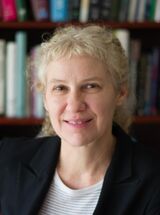
Degrees:
AB (Biology) Princeton University, 1981. PhD (Neuroscience) University Of Wisconsin-Madison, 1987.
Research Interests:
Molecular genetics of neurodegenerative disease and brain aging; molecular mechanisms of risk factors for neurodegenerative disease
Keywords: Neurodegeneration; suppressor mechanisms; human disease; Alzheimer's, Parkinson's and Huntington's diseases; Amyotrophic Lateral Sclerosis and Frontotemporal Dementia; Ageing; microRNAs; RNA binding proteins; stress response
Office Address:
204G Lynch Laboratory
433 South University Avenue
Philadelphia PA, 19104
(215) 573-9267
Email
SAS Biology Faculty Page
Mentor Training Completed
Unconscious Bias Trained
Grad Group Affiliations: CAMB (Cell and Molecular Biology), BMB (Biology and Molecular Biophysics), NGG (Neuroscience Graduate Group)
Languages Spoken: English
Robert Bowman, PhD
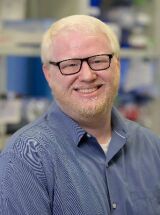
Degrees:
B.A. (Molecular Cellular Biology) Vanderbilt University 2010. PhD (Cancer Biology) Gerstner Sloan Kettering 2016
Research Interests:
We are interested in studying the evolution of cancer development from pre-malignancy through transformation. Hematologic malignancies are an ideal disease model to study classical questions in cancer biology, given sample access and extensive description of the normal hematopoietic differentiation cascade. Genetic studies in acute myeloid leukemia (AML) have revealed a hierarchical arrangement of mutations such that certain mutations are postulated to be acquired either early or late in disease progression. This stepwise acquisition of mutations results in a genetically heterogeneous collection of clones contributing to disease development. Through the progression from pre-malignancy to leukemic transformation, we study the following broad questions:
1) What are the necessary steps for a mutant cell to transform to leukemia?
2) After transformation, how do leukemic cells affect normal non-mutated cells?
3) How can we revert or halt transformed cells early in disease development to prevent disease development?
We approach these questions through an intersection of genomic profiling of patient samples and synthetic biology approaches for modeling disease in mice.
Keywords: Leukemia, hematopoiesis, single cell genomics, mouse modeling
Office Address:
BRB II/III 753
421 Curie Blvd
Philadelphia, PA, 19104
Email
Bowman Lab
Grad Group Affiliations: CAMB (Cell and Molecular Biology), GCB (Genomics and Computational Biology), IGG (Immunology Graduate Group)
Languages Spoken: English
Donita Brady, PhD
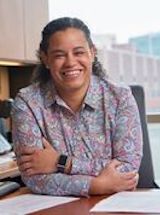
Degrees:
B.S. (Chemistry) Radford University, Radford, VA, 2003. Ph.D. (Pharmacology) University Of North Carolina At Chapel Hill, 2008.
Research Interests:
The research interests of our laboratory lie at the intersection of cancer biology, signal transduction, and metal homeostasis.
Keywords: Cancer Biology, Metal Homeostasis, Signal Transduction, Kinases, Small GTPases, Pharmacologic Interventions, Genetically Engineered Mouse Models
Office Address:
BRB II/III, Room 612
421 Curie Blvd.
Philadelphia, PA 19104
(215) 573-9705
Email
Brady Lab
Unconscious Bias Trained
Grad Group Affiliations: CAMB (Cell and Molecular Biology), BMB (Biology and Molecular Biophysics), PGG (Pharmacology Graduate Group)
Languages Spoken: English
Lawrence (Skip) Brass, MD, PhD

Degrees:
A.B. (Chemistry), Harvard College, 1970. Ph.D. (Biochemistry) Case Western Reserve University, 1975. M.D. Case Western Reserve, 1977.
Roles:
- Professor of Medicine
- Professor of Systems Pharmacology and Translational Therapeutics
- Attending Physician, Hospital of the University of Pennsylvania
- PI, Hematology Fellowship Training Grant, Department of Medicine, University of Pennsylvania, Perelman School of Medicine
- Associate Dean and Director, Combined Degree and Physician Scholar Programs, University of Pennsylvania, Perelman School of Medicine
Research Interests:
Mechanisms of hemostasis and thrombosis.
Keywords: platelets, coagulation, vascular biology, signal transduction, systems biology, proteomics, transgenic mice, megakaryocytes, intravital microscopy
Office Address:
815 BRB-II/III
421 Curie Blvd
Philadelphia, PA 19104
(215) 573-3540
Email
Brass Lab
Mentor Training Completed
Unconscious Bias Trained
Grad Group Affiliations: CAMB (Cell and Molecular Biology), BMB (Biology and Molecular Biophysics), PGG (Pharmacology Graduate Group)
Languages Spoken: English
Igor E. Brodsky, AB, PhD

Degrees:
AB (Molecular Biology) Princeton University, 1997. PhD (Microbiology and Immunology) Stanford University, 2004.
Research Interests:
Bacterial pathogens, Bacteriology, Infectious Disease, Inflammasome, Innate Immune Defense, Immunology.
The Brodsky lab values diversity in all its forms. We seek to provide a rigorous and supportive training environment that enables individuals from all backgrounds to pursue their love of discovery and advancement of biomedical knowledge while being their authentic selves.
Keywords: Inflammasome; Caspase-1; Caspase-8; Yersinia; Salmonella; Mucosal Immunity; Macrophages; Monocytes; Apoptosis; Sepsis
Office Address:
3800 Spruce St.
390EE Rosenthal
Philadelphia, PA 19104
(215) 746-8426
Email
Mentor Training Completed
Unconscious Bias Trained
Grad Group Affiliations: MVP (Microbiology, Virology and Parasitology)
Languages Spoken: English, Russian
Frederic D. Bushman, PhD
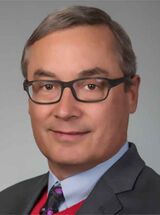
Degrees:
B.A. (Biology And English) Amherst College, 1980. Ph.D. (Cellular And Developmental Biology) Harvard University, 1988.
Research Interests:
SARS-CoV-2, HIV, human microbiome and virome, human gene therapy.
Keywords: microbiome, gene therapy, SARS-CoV-2, virome, HIV, integration, DNA modifying enzyme, virology.
Mentor Training Completed
Unconscious Bias Trained
Grad Group Affiliations: CAMB (Cell and Molecular Biology), GCB (Genomics and Computational Biology)
Languages Spoken: English
Ken Cadwell, PhD
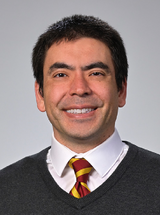
Degrees:
BA (Biological Sciences) Northwestern University , 2002. PhD (Molecular & Cell Biology) University of California, Berkeley, 2006.
Research Interests:
My laboratory investigates how our immune system has adapted to the diverse microbial agents we encounter in our lifetime. We address this question by focusing on the gastrointestinal tract where a single layer epithelium separates our body from pathogens and microbial colonizers belonging to the microbiota. Through taking a comparative infection biology approach, our research has identified cellular mechanisms underlying the balanced immune response that is necessary for responding to life-threatening infections while avoiding chronic illnesses like inflammatory bowel disease. Ongoing projects include elucidating how symbiotic intestinal viruses, fungi, and parasites contribute to local and extraintestinal disease susceptibility, defining how the cellular pathway of autophagy mediates resilience towards infectious threats, and understanding how polymicrobial exposure in the natural environment contributes to the developmental maturation of the immune system. Through these projects, we hope to gain further insight into how microbial diversity in the intestinal ecosystem shapes host physiology and pave the way for therapies that restore balanced host-microbe relationships.
Keywords: Microbiota, viral pathogenesis, host-microbe interactions, parasitology, mucosal immunity, autophagy, inflammatory bowel disease
Office Address:
951 BRB II/III
421 Curie Blvd
Philadelphia, PA 19104
(215) 573-1076
Email
Cadwell Lab
Mentor Training Completed
Unconscious Bias Trained
Grad Group Affiliations: CAMB (Cell and Molecular Biology), IGG (Immunology Graduate Group)
Languages Spoken: English
Iahn Cajigas, MD, PhD
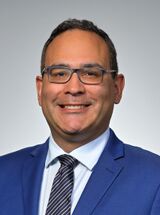
Degrees:
B.S. Electrical Engineering and Computer Science Massachusetts Institute of Technology, 2002. M.Eng.Electrical Engineering and Computer Science Massachusetts Institute of Technology, 2003. Ph.D. Electrical and Medical Engineering Massachusetts Institute of Technology, 2012. M.D. Harvard Medical School, 2014.
Research Interests:
The Cajigas lab is a translational neurosurgery research laboratory interested in addressing clinical knowledge and treatment gaps in the fields of movement disorders, epilepsy, and pain. The lab utilizes computational, engineering, and statistical methods to analyze electrophysiological data to assist with surgical planning, develop novel neurologic targets for neuromodulation, and understand the neural control of movement with the goals of restoring function after neurologic injury.
Clinical Specialties:
Neurosurgery (functional neurosurgery, movement disorders, pain, epilepsy)
Keywords: Signal processing, neuromodulation, brain computer interfaces, control systems, machine learning, statistics, neural imaging, movement disorders, pain, epilepsy
Office Address:
801 Spruce Street
Spruce Building, 8th floor
Philadelphia, PA 19107
(215) 829-6700
Email
Cajigas Lab
Unconscious Bias Trained
Grad Group Affiliations: NGG (Neuroscience Graduate Group), BE (Bioengineering)
Languages Spoken: Spanish, English, Portuguese
Philip Campbell, MD, PhD

Degrees:
BSc (Chemistry), McGill University 2009. MD/PhD (Developmental and Molecular Biology), Albert Einstein College of Medicine 2017.
Research Interests:
To elucidate cellular and molecular mechanisms of neuropsychiatric disorders, the Campbell lab studies genes associated with these disorders using high throughput behavioral and whole brain imaging approaches in the zebrafish model system. Techniques in the lab include CRISPR-Cas9 mutagenesis, spatiotemporal gene rescue approaches, RNA sequencing, confocal imaging, and behavioral analysis.
Clinical Specialties:
Psychiatry.
Keywords: Cellular/molecular/genetic mechanisms of neurodevelopmental disorders, behavior, zebrafish, schizophrenia, autism, psychiatry, mitochondria
Mentor Training Completed
Grad Group Affiliations: CAMB (Cell and Molecular Biology), NGG (Neuroscience Graduate Group)
Michael Cancro, PhD
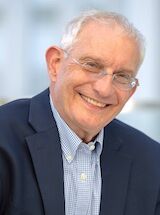
Degrees:
B.S. (Zoology) University Of Maryland College Park, 1973. Ph.D. (Zoology/Genetics) University Of Maryland College Park, 1976. Postdoc (Immunology) University Of Pennsylvania, 1977.
Research Interests:
B lymphocyte development, selection, and homeostasis; immunobiology of aging.
Keywords: B lymphocytes, immunity, autoimmunity
Office Address:
284 John Morgan Building
3620 Hamilton Walk
Philadelphia, PA 19104
Email
Mentor Training Completed
Unconscious Bias Trained
Grad Group Affiliations: IGG (Immunology Graduate Group)
Languages Spoken: English
Brian Capell, MD, PhD
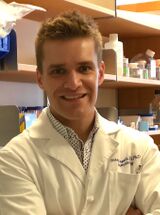
Degrees:
BS, Boston College. MD-PhD, New York University School of Medicine Dermatology. Residency: University of Pennsylvania.
Research Interests:
Epithelial tissues rely on a highly coordinated balance between self-renewal, proliferation, and differentiation. Epigenetic mechanisms provide this precise control through the regulation of gene expression in order to establish and maintain cell fate and identity. Disruption of these pathways can disrupt diverse cellular processes including both metabolism and immunity, and ultimately drive diseases such as cancer.
Clinical Specialties:
Dermatology
Keywords: Epigenetics, chromatin, epithelial cancer, development and differentiation
Office Address:
421 Curie Blvd
Biomedical Research Building, 10th floor
Email
Capell Lab
Mentor Training Completed
Unconscious Bias Trained
Grad Group Affiliations: G&E (Genetics and Epigenetics)
Languages Spoken: English
Ricardo Castillo-Neyra, PhD, DVM, MSPH
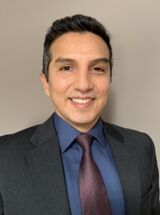
Degrees:
BSc (Veterinary Medicine), Universidad Nacional Mayor De San Marcos, 2006. DVM (Veterinary Medicine), Universidad Nacional Mayor De San Marcos, 2007. PhD (Epidemiology), Johns Hopkins. Bloomberg School Of Public Health, 2014. MSPH (International Health) Johns Hopkins Bloomberg School Of Public Health, 2014.
Research Interests:
I study the eco-epidemiology of tropical diseases. My current research uses canine rabies as a model system to understand how the social and spatial features of urban areas influence the emergence and persistence of infectious diseases.
Keywords: Global health, Tropical diseases, Zoonotic diseases, Epidemiology, Outbreaks, One Health
Office Address:
Room 715, Blockley Hall
423 Guardian Drive
Philadelphia, PA 19104-6021
Email
DBEI Profile
Mentor Training Completed
Unconscious Bias Trained
Grad Group Affiliations: GGEB (Epidemiology and Biostatistics)
Languages Spoken: Spanish, English
Yi-Wei Chang, PhD
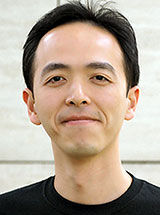
Degrees:
B.S. (Mechanical Engineering ) Chung Hua University, Taiwan, 2004. Ph.D. (Structural Biology ) Academia Sinica & National Tsing Hua University, Taiwan, 2010.
Research Interests:
To understand disease-causing mechanisms through cellular structural imaging at the highest-possible resolution by cutting-edge cryo-electron tomography
Clinical Specialties:
913B Stellar Chance Laboratories
422 Curie Boulevard
Philadelphia PA, 19104
Keywords: Structural biology; Cryo-electron microscopy (cryo-EM); Cryo-electron tomography (cryo-ET); Correlative light and electron microscopy; Cellular imaging; Microbiology; Parasitology; Host-pathogen interaction
Office Address:
913B Stellar Chance Laboratories
422 Curie Boulevard
Philadelphia PA, 19104
(215) 898-7789
Email
Yi-Wei Chang Lab
Mentor Training Completed
Unconscious Bias Trained
Grad Group Affiliations: CAMB (Cell and Molecular Biology), BMB (Biology and Molecular Biophysics), BE (Bioengineering)
Languages Spoken: English, Mandarin Chinese
Alice Chen-Plotkin, MD

Degrees:
AB (English) Harvard-Radcliffe College, 1996. MSc (Biology) University Of Oxford, 1998. MD Harvard Medical School, 2003.
Research Interests:
The over-arching goal of our research is to better understand the mechanisms of neurodegenerative disease in order to intervene in these disease processes.
Our general approach is to use unbiased genomic- or proteomic-scale screens in human-derived materials to generate leads, which are then followed mechanistically in relevant systems including neuronal culture and in vivo animal models. The pace of technology development is allowing us to acquire more data, faster, than ever before, but this does not always translate into biological understanding. We believe that to unlock the true potential of leads generated in this way, computational methods must work hand-in-hand with bench-based manipulative experiments. We are looking for new ways to do this all the time.
Clinical Specialties:
Neurology.
Keywords: Neurodegeneration, Parkinson's disease, dementia, Genomics Biomarkers
Mentor Training Completed
Unconscious Bias Trained
Grad Group Affiliations: CAMB (Cell and Molecular Biology), BMB (Biology and Molecular Biophysics), NGG (Neuroscience Graduate Group), BE (Bioengineering)
Languages Spoken: English
Sara Cherry, PhD
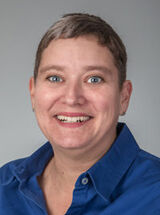
Degrees:
B.S. (Chemistry) U.C. Berkeley, 1994. Ph.D. (Biology) MIT, 2000.
Research Interests:
Genetic and mechanistic studies of viral-host interactions.
Keywords: virus, genomics, RNAi, genetics, Drosophila, innate, immunity, therapeutics, and antivirals
Office Address:
472A Stemmler Hall
3450 Hamilton Walk
Philadelphia PA, 19104
(215) 746-2384
Email
Cherry Lab
Mentor Training Completed
Unconscious Bias Trained
Grad Group Affiliations: CAMB (Cell and Molecular Biology), GCB (Genomics and Computational Biology), IGG (Immunology Graduate Group), PGG (Pharmacology Graduate Group)
Languages Spoken: English
Lewis A. Chodosh, MD, PhD

Degrees:
B.S. (Molecular Biophysics & Biochemistry) Yale University, 1981. Ph.D. (Biochemistry) Massachusetts Institute Of Technology, 1988. M.D. Harvard Medical School, 1989.
Research Interests:
The Chodosh laboratory uses genetically engineered mouse models, patient samples and bioinformatics to understand the mechanisms by which cancers develop, progress to more aggressive states, and ultimately contribute to cancer mortality. A broad array of basic and translational research approaches are used to address problems of fundamental clinical importance to cancer patients by elucidating pathways and principles common to human cancers. These approaches encompass genetics, genomics, molecular biology, biochemistry, cell biology, computational biology, functional imaging, animal studies, preclinical trials and clinical investigation. Particular areas of interest include: pathways regulating cancer development, metastasis, tumor dormancy and recurrence; the use of genomics and computational approaches to understand genetic programs in cancer; the impact of obesity on cancer recurrence; the mechanisms by which pregnancy protects against breast cancer; and the use of non-invasive imaging approaches to study tumor biology.
Keywords: Cancer biology, breast cancer, tumor dormancy, metastatic recurrence, therapy resistance, cancer genetics, genomics, computational biology, oncogenes, targeted therapy, functional imaging, development.The Chodosh laboratory uses genetically engineered mouse models, patient samples and bioinformatics to understand the mechanisms by which cancers develop, progress to more aggressive states, and ultimately contribute to cancer mortality. A broad array of basic and translational research approaches are used to address problems of fundamental clinical importance to cancer patients by elucidating pathways and principles common to human cancers. These approaches encompass genetics, genomics, molecular biology, biochemistry, cell biology, computational biology, functional imaging, animal studies, preclinical trials and clinical investigation. Particular areas of interest include: pathways regulating cancer development, metastasis, tumor dormancy and recurrence; the use of genomics and computational approaches to understand genetic programs in cancer; the impact of obesity on cancer recurrence; the mechanisms by which pregnancy protects against breast cancer; and the use of non-invasive imaging approaches to study tumor biology.
Office Address:
614 BRB II/III
421 Curie Blvd
Philadelphia, PA 19104
(215) 898-1321
Email
Mentor Training Completed
Unconscious Bias Trained
Grad Group Affiliations: CAMB (Cell and Molecular Biology), GCB (Genomics and Computational Biology), BMB (Biology and Molecular Biophysics), PGG (Pharmacology Graduate Group)
Languages Spoken: English
Peter Choi, PhD
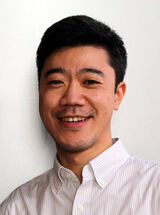
Degrees:
B.S. (Biology), Cornell University, 2002. Ph.D. (Immunology), Stanford University, 2012.
Research Interests:
Our laboratory is interested in the genetics of cancer and in particular, how genetic alterations affecting processes such as RNA splicing drive cancer and expose potential therapeutic vulnerabilities.
Links:
Choi Laboratory
Penn Faculty Page
Keywords: Cancer biology; Genetics; Genome editing; RNA splicing; Next-generation sequencing; Synthetic lethality
Office Address:
3501 Civic Center Blvd
4064 Colket Translational Research Building
Philadelphia, PA 19104
Email
The Choi Lab
Mentor Training Completed
Unconscious Bias Trained
Grad Group Affiliations: CAMB (Cell and Molecular Biology)
Languages Spoken: English
Brian Chow, PhD

Degrees:
B.S. in Chemistry from Stanford University. Ph.D. from M.I.T. in 2008
Research Interests:
The Chow Laboratory invents optical technologies to manipulate and monitor cellular physiology, and applies them to understanding how cells make decisions in response to external cues.
Keywords: Optogenetics, Synthetic Biology, Photosensory Biology, GTPase signaling.
Grad Group Affiliations: BMB (Biology and Molecular Biophysics), NGG (Neuroscience Graduate Group), BE (Bioengineering), MSE (Materials Science and Engineering)
Languages Spoken: English
Diego Contreras, MD, PhD
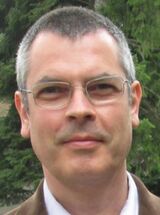
Degrees:
M.D. University Autonoma Of Madrid, Spain, 1988. Ph.D. Laval University, Quebec, Canada, 1996.
Research Interests:
Representation of information in thalamocortical networks. Epilepsy.
Keywords: Neocortex, thalamus, optical imaging, information, coding, epilepsy
Unconscious Bias Trained
Grad Group Affiliations: NGG (Neuroscience Graduate Group)
Languages Spoken: Spanish, English, French
George Cotsarelis, MD
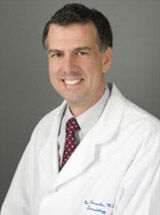
Degrees:
B.A. (Bio Basis Of Behavior) University Of Pennsylvania, 1983. M.D. (Medicine) University Of Pennsylvania, 1987.
Research Interests:
Stem cells; hair follicle; wounding; aging skin.
Clinical Specialties:
Alopecia.
Keywords: skin, stem cells, regeneration, alopecia, wound healing
Mentor Training Completed
Unconscious Bias Trained
Grad Group Affiliations: CAMB (Cell and Molecular Biology)
Languages Spoken: English, Greek
Douglas A. Coulter, PhD
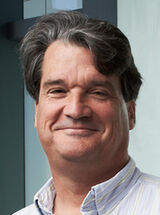
Degrees:
B.S. (Biology With Honors) Trinity College, Hartford, CT, 1980. M.S. (Zoology) University Of Rhode Island, 1983. Ph.D. (Biology) Boston University Marine Program, Marine Biological Laboratory, Woods Hole, MA, 1986.
Research Interests:
Epilepsy, neuronal excitability, CNS rhythm generation, circuit imaging, GABA receptors, development of neurotransmitter receptors and ion channels, synaptic function
Keywords: epilepsy, hippocampus, circuit imaging, GABA receptors, thalamus
Unconscious Bias Trained
Grad Group Affiliations: NGG (Neuroscience Graduate Group)
Languages Spoken: English
Qi N. Cui, MD, PhD

Degrees:
BS (Molecular & Cellular Biology And Psychology) University Of Arizona, 2002. MD/PhD (Neurobiology And Anatomy) University Of Rochester School Of Medicine And Dentistry, 2011.
Research Interests:
Evaluating glaucoma pathogenesis to identify effective treatments for a neurodegenerative disease affecting the retina and the optic nerve.
Dr. Cui can be found on Twitter @CuiLab.
Clinical Specialties:
Ophthalmology, Glaucoma (medical and surgical)
Keywords: ophthalmology; glaucoma; neuroprotection; neurodegeneration; GLP-1 receptor agonists; iron chelation; retinal ganglion cells; optic nerve; intraocular pressure
Office Address:
305A Stellar-Chance
422 Curie Blvd
Philadelphia, PA 19103
Email
Cui Lab
Mentor Training Completed
Unconscious Bias Trained
Grad Group Affiliations: CAMB (Cell and Molecular Biology), NGG (Neuroscience Graduate Group), PGG (Pharmacology Graduate Group)
Languages Spoken: English, Mandarin Chinese
Beverly Davidson, PhD

Degrees:
B.S. (Biology Major/Chemistry Minor; High Distinction) Nebraska Wesleyan University, 1981. Ph.D. (Biological Chemistry) University Of Michigan, 1987.
Research Interests:
Research in the Davidson Laboratory is focused on inherited genetic diseases that cause central nervous system dysfunction, with a focus on: i) recessive, childhood onset neurodegenerative disease, such as the lysosomal storage diseases mucopolysaccharidoses and Battens disease; ii) dominant genetic diseases, specifically the CAG repeat disorders, Huntington's disease and Spinocerebellar ataxia; iii) understanding how changes in the transcriptome impact neural development and neurodegenerative disease processes.
Keywords: Neurodegenerative diseases; Gene therapy; Vector development; Animal models
Office Address:
5060 CTRB
3501 Civic Cntr Blvd
Philadelphia, PA 19104
Email
Mentor Training Completed
Unconscious Bias Trained
Grad Group Affiliations: CAMB (Cell and Molecular Biology), NGG (Neuroscience Graduate Group), GTV (Gene Therapy and Vaccines)
Languages Spoken: English
Kate Davis, MD, MSc
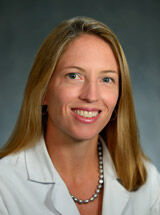
Degrees:
BSc (Neuroscience) Brown University, 1999. MD Yale University School of Medicine, 2004. MSTR (Masters in Translational Research) University of Pennsylvania, 2011.
Research Interests:
Dr. Davis' research centers around utilizing both the advancing fields of invasive neurophysiology and neuroimaging to better localize epileptic networks in medication refractory epilepsy patients. She hopes that improving localization will enable epileptologists to better localize epileptic networks and assign individual patients to the most efficacious therapy, for example, seizure control devices, resective surgery, or continued medical management.
Clinical Specialties:
Epilepsy.
Keywords: Neuroimaging, electrophysiology, epilepsy, network neuroscience
Sharlene Day, MD

Degrees:
BS (Biology) Massachusetts Institute of Technology, 1991. M.D. (Medicine) New York University School of Medicine, 1995.
Research Interests:
The Day lab is interested in genetic heart muscle diseases. Our research program integrates translational and clinical science, with a primary focus on hypertrophic cardiomyopathy. We want to understand the full spectrum of disease evolution and progression, from the primary effects of sarcomere gene mutations in cardiac muscle cells to the phenotypic expression and predictors of adverse outcomes in patients.
Clinical Specialties:
Hypertrophic cardiomyopathy and cardiovascular genetic heart conditions.
Keywords: Cardiomyopathy, cardiovascular genetics, hypertrophic cardiomyopathy, molecular chaperones, protein quality control, translational
Office Address:
Smilow Center for Translational Research, 11-102
3400 Civic Center Boulevard
Philadelphia PA, 19104
(734) 548-0394
Email
Sharlene Day Lab
Unconscious Bias Trained
Grad Group Affiliations: CAMB (Cell and Molecular Biology)
Languages Spoken: English
Cesar de la Fuente, PhD

Degrees:
M.Sc. (Biotechnology) University of Leon, 2009. Ph.D. (Microbiology & Immunology) University of British Columbia, 2014.
Roles:
Presidential Assistant Professor
Research Interests:
My lab's goal is to combine the power of machines and biology to understand, prevent, and treat infectious diseases.
Keywords: Machine biology; Synthetic biology; infectious diseases; computational biology; microbiology
Office Address:
Robert Wood Johnson Pavilion, 303C
3610 Hamilton Walk
Philadelphia PA, 19104
(215) 746-6083
Email
de la Fuente Lab
Unconscious Bias Trained
Grad Group Affiliations: CAMB (Cell and Molecular Biology), GCB (Genomics and Computational Biology), BMB (Biology and Molecular Biophysics), NGG (Neuroscience Graduate Group), PGG (Pharmacology Graduate Group)
Languages Spoken: Spanish, English
Horace M. Delisser, MD
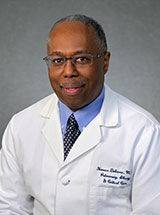
Degrees:
BA Temple University , 1981. M.D. University Of Pennsylvania, 1985.
Roles:
I am the Associate Dean for Diversity and Inclusion, directing the school’s efforts to promote medical student inclusion and diversity. I have also been involved in promoting graduate medical trainee and faculty diversity at the University of Pennsylvania through various institutional mentoring programs.
Research Interests:
[1] Endothelial Cell Adhesion and Motility
[2] Angiogenesis
[3] Tumor Metastasis
[4] Pulmonary Hypertension
Roberto Dominguez, Ph.D.

Degrees:
M.S. (Theoretical Physics & Mathematics), Faculty Of Physics, Odessa State University (Former USSR), 1987. Ph.D. (Protein Crystallography And Biochemistry), Pasteur Institute & Paris-Sud University, Paris, France, 1996
Research Interests:
My laboratory studies the proteins that control the actin cytoskeleton and cytoskeleton-membrane connections, as well as the signaling pathways that regulate their activities. We use interdisciplinary approaches, spanning structural biology, biochemistry and cell biology, allowing us to correlate the functional mechanisms of proteins to their cellular activities
Keywords: Structural biology (x-ray crystallography, cryo-EM), Biochemistry & Biophysics applied to the study of the cellular cytoskeleton
Office Address:
415 Curie Blvd (CRB 728)
Philadelphia, PA 19104-6085
(215) 573-4559
Email
Mentor Training Completed
Unconscious Bias Trained
Grad Group Affiliations: CAMB (Cell and Molecular Biology), BMB (Biology and Molecular Biophysics)
Languages Spoken: Spanish, English, French, Russian
Nadia Dowshen, MD
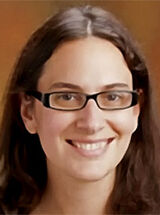
Degrees:
BA (Urban Studies) University Of Pennsylvania, 1999. MD University Of Pennsylvania School Of Medicine, 2004. MSHP University Of Pennsylvania, 2016.
Clinical Specialties:
Pediatrics/Adolescent Medicine. Medical Director of Adolescent HIV Clinic and Gender and Sexuality Development Program.
Keywords: HIV/AIDS, mHealth, digital health, transgender health, LGBT health, adolescent health, health equity
Unconscious Bias Trained
Grad Group Affiliations: GGEB (Epidemiology and Biostatistics)
Languages Spoken: English
Joshua L. Dunaief, MD, PhD
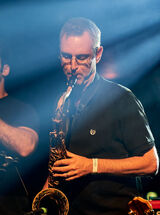
Degrees:
B.A. (Biology) Harvard University (Magna Cum Laude), 1987. PhD (Microbiology) Columbia University, 1994. MD Columbia University, 1996.
Research Interests:
We study the pathogenesis of age-related macular degeneration of the retina, focusing on oxidative stress and inflammation. More broadly, we are interested in mechanisms of aging and therapeutic approaches to prevent age-related diseases. One therapy currently showing promise is oral administration of an oxidation-resistant fatty acid. We are also testing iron-specific chelation and antioxidant gene therapy in mouse models of macular degeneration. Multimodal in vivo retinal imaging in mice and functional testing with electroretinography greatly accelerate discovery.Clinical Specialties:
Medical retina. Stopped seeing patients in 2019 to focus on research.
Keywords: retinal degeneration, retina biology, neurodegeneration, oxidative stress, antioxidants, iron transport, apoptosis, aging, inflammation, transcriptomics, gene therapy, pharmacotherapy, cell biology, histology
Office Address:
305 Stellar-Chance Laboratories
422 Curie Boulevard
Philadelphia PA, 19104
(215) 898-5235
Email
Dunaief Lab
Mentor Training Completed
Unconscious Bias Trained
Grad Group Affiliations: CAMB (Cell and Molecular Biology), NGG (Neuroscience Graduate Group), PGG (Pharmacology Graduate Group)
Languages Spoken: English
Andrew Edmondson, MD, PhD
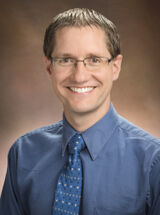
Degrees:
BS (Microbiology and Russian, minors in Molecular Biology and Chemistry, University Honors) Brigham Young University, 2004. MD/PhD (Cell and Molecular Biology) University of Pennslyvania, 2013.
Research Interests:
We use model systems (primary cells, iPSCs, mouse) of rare genetic neurodevelopmental disorders that disrupt glycosylation (known as Congenital Disorders of Glycosylation, or CDG) and glycoproteomics to study glycosylation in the brain.
Clinical Specialties:
Human Genetics
Keywords: Biochemical genetics, CDG, epilepsy, gene discovery, genetics, genomics, glycoproteomics, glycosylation, mouse models, neurogenetics, neuroscience, targeted therapeutics
Office Address:
Abramson Research Building, 1007C
3615 Civic Center Boulevard
Philadelphia, PA 19104
Email
Penn Faculty Page
Mentor Training Completed
Unconscious Bias Trained
Grad Group Affiliations: CAMB (Cell and Molecular Biology), NGG (Neuroscience Graduate Group), G&E (Genetics and Epigenetics)
Languages Spoken: English, Russian
Laurence C. Eisenlohr, VMD, PhD

Degrees:
BS (Biology) Haverford College , 1979. VMD (Veterinary Medicine) University of Pennsylvania, 1983. PhD (Immunology) University of Pennsylvania, 1988.
Research Interests:
Dr. Eisenlohr studies the fundamental aspects of host defense, primarily against virus infections such as influenza and HIV.
Keywords: antigen processing and presentation, viral immunity, T cell responses and memory, influenza, poxviruses, HIV, beta-coronavirus
Office Address:
1107B Abramson Research Center
3615 Civic Center Blvd.
Philadelphia, PA 19104
(215) 590-0952
Email
Eisenlohr Lab
Mentor Training Completed
Unconscious Bias Trained
Grad Group Affiliations: CAMB (Cell and Molecular Biology), IGG (Immunology Graduate Group), MVP (Microbiology
Languages Spoken: English
Jonathan A. Epstein, MD
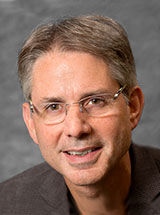
Degrees:
A.B. (Biochemistry) Harvard College, 1983. M.D. (Medicine) Harvard Medical School, 1988.
Research Interests:
Epigenetic regulation of stem cell biology, developmental biology, nuclear architecture and cardiovascular medicine. We also have an interest in the use of mRNA and lipid nanoparticles to create CART cells to treat fibrosis.
Clinical Specialties:
Cardiovascular medicine, though no longer seeing patients.
Keywords: Nuclear architecture, Cardiac development, Neural crest, Transcription, Epigenetics, Stem cells, CAR T, Fibrosis, Hopx
Mentor Training Completed
Unconscious Bias Trained
Grad Group Affiliations: CAMB (Cell and Molecular Biology)
Languages Spoken: English
David Fajgenbaum, MD, MSC, MBA

Degrees:
BS (Human Sciences With Distinction, Magna Cum Laude) Georgetown University, Washington, DC, 2007. MSc (Public Health) University Of Oxford, Oxford, UK, 2008. MD (Medicine) University Of Pennsylvania Perelman School Of Medicine, 2013. MBA (Health Care Management Program) Wharton School Of Business, University Of Pennsylvania, 2015.
Roles:
Founding Director, Center for Cytokine Storm Treatment & Laboratory (CSTL)
Associate Director, Patient Impact of the Penn Orphan Disease Center
Co-Founder/President of the Castleman Disease Collaborative Network (CDCN)
Research Interests:
1) Elucidating the etiology, dysregulated cell types, signaling pathways, and effector cytokines in idiopathic multicentric Castleman disease (iMCD) and related cytokine storm disorders
iMCD is a poorly-understood and deadly hematologic disorder. A proinflammatory cytokine storm and reactive lymphoproliferation occur for an unknown etiology. The poor understanding of etiology and pathogenesis has limited the development of effective treatments and contributed to the significant morbidity and mortality associated with iMCD (55-77% 5-year overall survival). Currently, we leverage a variety of techniques to study the etiology and pathogenesis of iMCD. In addition, we leverage a biobank (CastleBank) to collect samples to fuel our translational research.
2) Identifying effective treatments for iMCD patients
The poor understanding of iMCD pathogenesis has slowed the development of treatment approaches. Currently, there is only one FDA-approved treatment for iMCD, which is effective in approximately one-third or patients. We run an international Natural History Study of Castleman Disease (ACCELERATE) to collect in-depth data on patients around the world to identify effective treatment approaches currently being used off-label.
3) PI3K/Akt/mTOR signaling in iMCD
Proteomic, flow cytometric, and immunostaining studies revealed upregulation of Vascular Endothelial Growth Factor (VEGF), activated CD8+ T cells, and uncontrolled PI3K/Akt/mTOR signaling in iMCD. Whole genome sequencing of an iMCD patient and both parents revealed rare compound heterozygous missense mutations in both alleles of a negative regulator of T cell activation and a candidate etiological mechanism. These novel findings led to the first-ever use of sirolimus in iMCD and a prolonged remission for a refractory patient (manuscript in submission). Drawing upon the world's largest collection of iMCD patients and their biospecimens in ACCELERATE, we are employing whole genome sequencing, transcriptomics, proteomics, flow cytometry and phospho-flow, and cellular signaling assays to continue to elucidate the role of PI3K/Akt/mTOR signaling in iMCD. As there are no animal models, we are also performing extensive correlative studies to quantify changes in VEGF, T cell activation, PI3K/Akt/mTOR signaling, and other immunological markers following in vivo sirolimus administration to patients and documenting treatment efficacy.
4) Investigating the role of stromal cells and chemokines in iMCD
Quantification of 1,129 plasma proteins in iMCD revealed highly up-regulated acute phase reactants and chemokines. The chemokines that were most upregulated are essential for normal lymph node morphology/function and typically produced by lymph node stromal cells. The most up-regulated chemokine, CXCL13, is responsible for homing B cells into the germinal center. This is interesting, because the pathological hallmark of iMCD is dysmorphic lymph node germinal centers with either too few (atrophic) or too many B cells (hyperplastic). Immunohistochemistry confirmed significantly increased germinal center expression of CXCL13. We are exploring the mechanisms of lymph node stromal cell activation and chemokine signaling.
5) Methods for accelerating drug development and drug repurposing
I am looking for motivated MD, PhD, and MD/PhD students to join my lab to help advance understanding of mechanisms involved in hyperinflammation/cytokine storm and translate these findings into novel treatment approaches for cytokine storm disorders.
Keywords: Castleman disease, cytokine storm, drug repurposing, IL-6, PI3K/Akt/mTOR
Office Address:
3620 Hamilton Walk
214/215 Anatomy/Chemistry Building
Philadelphia, PA 19104
(215) 614-0936
Email
PSOM Faculty Listing
Unconscious Bias Trained
Grad Group Affiliations: IGG (Immunology Graduate Group)
Languages Spoken: English
Bruce D. Freedman, VMD, PhD
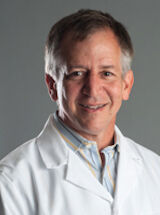
Degrees:
B.S. Dickinson College, 1980 M.S. Pennsylvania State University, 1983 V.M.D. University of Pennsylvania, 1987 Ph.D. University of Pennsylvania, 1992
Research Interests:
Calcium, Calcium channels, Calcium Signaling, Signal transduction in lymphocytes and macrophages, calcium dependent mechanisms of viral entry and egress in cells. Calcium regulation of gene expression in lymphocytes
Keywords: Cell Signaling, Signal transduction, B lymphocytes, T lymphocytes, NF-kB, Calcium signaling
Office Address:
368E Old Vet Bldg
3800 Spruce Street
Philadelphia PA, 19104
(215) 573-8218
Email
Unconscious Bias Trained
Grad Group Affiliations: CAMB (Cell and Molecular Biology), IGG (Immunology Graduate Group), GTV (Gene Therapy and Vaccines)
Languages Spoken: English
Marc V. Fuccillo, MD, PhD
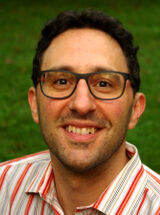
Degrees:
B.A. (Molecular and Cellular Biology, Music Performance (Violin)) Brown University, 1998. Ph.D. (Developmental Genetics) New York University School of Medicine, 2007. M.D. New York University School of Medicine, 2008.
Research Interests:
The synaptic and circuit mechanisms of behavioral control.
Keywords: Synaptic transmission, striatal circuits, inhibition, mouse genetics, in vitro electrophysiology, in vivo imaging, goal-directed behavior, motor control, neuropsychiatric disease modeling
Office Address:
415 Curie Blvd
Clinical Research Building
Room 226
Philadelphia, PA 19104
(215) 898-8744
Fuccillo Lab
Mentor Training Completed
Unconscious Bias Trained
Grad Group Affiliations: CAMB (Cell and Molecular Biology), NGG (Neuroscience Graduate Group)
Languages Spoken: English
Terence Gade, MD, PhD
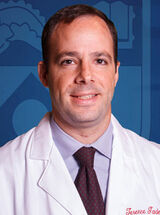
Clinical Specialties:
Interventional Radiology.
Keywords: image-guided interventions, molecular imaging, cancer biology
Office Address:
652 BRB II/III
421 Curie Blvd
Philadelphia, PA 19104
(215) 573-9756
Email
Pigi Lab
Mentor Training Completed
Unconscious Bias Trained
Grad Group Affiliations: CAMB (Cell and Molecular Biology), BE (Bioengineering)
Languages Spoken: English
Michael Gandal, MD, PhD
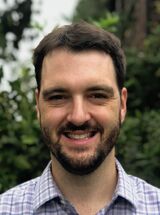
Degrees:
BS, Stanford, Engineering MD/PhD, UPenn, Bioengineering Residency, UCLA, Psychiatry Fellowship, UCLA, Neurogenetics
Research Interests:
Our research leverages genetic and genomic tools to identify the underlying biological mechanisms and novel therapeutic targets for neurodevelopmental and psychiatric disorders, including autism, ADHD, bipolar disorder, and schizophrenia. Our current work focuses on translating the ever-expanding results from large-scale genetic association studies (GWAS) of neuropsychiatric disorders into tractable biological mechanisms and testable hypotheses. To accomplish this, we are currently working to: 1) Perform population-level genetic and multi-OMIC profiling of the developing and adult human brain; 2) Develop and apply integrative functional genomic methods to identify the target genes and proximal mechanisms within genetic loci associated with psychiatric disorders; 3) Leverage systems biology to identify pathways of convergence among multiple distinct genetic risk factors, at both a population level and within an individual; 4) Characterize the brain-level molecular pathology of major neuropsychiatric disorders, through gene and network-level inference
Clinical Specialties:
Adult psychiatry.
Keywords: Developmental brain genomics, psychiatric genetics, bioinformatics, systems and computational biology, neuroscience, brain development
Mentor Training Completed
Unconscious Bias Trained
Grad Group Affiliations: GCB (Genomics and Computational Biology), NGG (Neuroscience Graduate Group), G&E (Genetics and Epigenetics)
Languages Spoken: English
James Gee, PhD

Degrees:
B.S. (Electrical Engineering) University of Washington, 1987. B.S. (Computer Science) University of Washington, 1987. M.S. (Electrical Engineering) University of Washington, 1989. Ph.D. (Computer and Information Science) University of Pennsylvania, 1996.
Research Interests:
Dr. Gee's research interests are broadly in the field of biological and medical image analysis and computing. Toward this end, the group he directs, the Penn Image Computing and Science Laboratory (PICSL), conducts basic and applied research in mathematical, computational and statistical methods for extracting, analyzing and integrating information from imaging and ancillary data. Of particular interest to the lab are methods for detecting, quantifying and modeling the ways in which anatomy and physiology can vary in nature, over time, or as a consequence of disease or therapy. PICSL is well known internationally for its long track record of methodological innovation in nearly every area of the field, and for its commitment to translating research accomplishments into highly acclaimed open-source software that directly underpin hundreds of published imaging studies across the world every year. The group's large portfolio of interdisciplinary collaborations spans different model systems and the major modalities in biological and medical imaging of various organ systems in health and disease.
Keywords: Biological and medical image analysis and computing; Digital atlases; Computational anatomy; Open-source software
Office Address:
Richards Medical Research Laboratories, D067
3700 Hamilton Walk
Philadelphia PA, 19104
Email
Penn Image Computing & Science Lab
Mentor Training Completed
Unconscious Bias Trained
Grad Group Affiliations: BE (Bioengineering), CIS (Computer and Information Science), AMCS (Applied Mathematics and Computational Science)
Languages Spoken: English
Maria Neimark Geffen, PhD
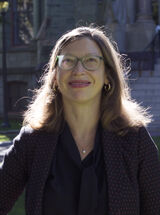
Degrees:
A.B. (Molecular Biology) Princeton University, 2001. Ph.D. (Biophysics) Harvard University, 2006.
Research Interests:
Dr. Geffen is a leader in the field of auditory neuroscience. She is interested in the way the brain encodes information about the world and how our perception is shaped by our emotional state and experience. She combines computational and biological approaches to study the mechanisms behind dynamic auditory perception, memory and learning.
Dr. Geffen first became interested in systems neuroscience through her undergraduate thesis under mentorship of John Hopfield at Princeton University, in which she explored the mechanics of whisking in rats. She studied texture encoding in the somatosensory system with Christopher Moore at MIT during her first two years of graduate school at Harvard. She completed her Ph.D. in the laboratory of Markus Meister at Harvard University, where she discovered a novel retinal circuit for processing moving images. After her Ph.D., she was a fellow at the Center for Physics and Biology at Rockefeller University, where she worked under mentorship of Dr. Marcelo Magnasco, exploring the dynamics of natural sounds.
Dr. Geffen has been directing the Laboratory for Auditory Coding at the University of Pennsylvania since 2010. She was promoted to Associate Professor in 2018. Dr. Geffen's recent discoveries include: identifying a novel cell type that supports hearing of unexpected sounds; establishing the connection between emotional learning and sound perceptual acuity; and elucidating the neuronal code for representation of communication signals in the brain. Her scientific results are regularly published in well-recognized journals, including Nature Neuroscience, eLife and PLoS Biology. Her research accomplishments have been recognized with prestigious awards, including the Burroughs Wellcome Career Award at the Scientific Interface, the Klingenstein Foundation Award in Neurosciences, the Human Frontiers in Science Foundation Young Investigator Award, the Auditory Neurophysiology Young Investigator Spotlight Award and the Kaufman Foundation New Initiative Grant. Her research is supported by multiple grants from the NIH, including NIDCD and the BRAIN Initiative, as well as by private and international foundations. She serves as a permanent member on an NIH review panel, and has served as the general chair and workshop director for multiple national and international meetings. She currently serves as a co-director of the Cajal Course in Computational Neuroscience, and an organizer of the E.A.R.S. seminar series. Dr. Geffen is a dedicated mentor and her trainees have won the Brain Research Foundation Young Investigator Award, multiple Ruth L. Kirschstein National Research Service Awards from the NIH and the Saul Winegrad Award for Outstanding Dissertation.
Keywords: neuroscience, computational neuroscinece, auditory neuroscience, imaging, electrophysiology, auditory system, systems neuroscience
Office Address:
Stemmler Hall G14A
3460 Hamilton Walk
University of Pennsyvlania
Philadelphia, PA 19104
Email
Laboratory of Auditory Coding
Mentor Training Completed
Unconscious Bias Trained
Grad Group Affiliations: Psychology, NGG (Neuroscience Graduate Group), BE (Bioengineering)
Languages Spoken: English
Lindsey George, MD, MSTR
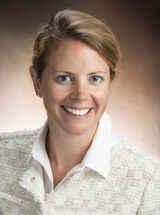
Degrees:
B.S. (Biology) Cornell University, 2004. M.D. (Medicine) State University At Buffalo, School Of Medicine And Biological Sciences, 2008. MSTR (Translational Research) University Of Pennsylvania, School Of Medicine, 2021.
Research Interests:
The current focus of the my lab is to merge mechanistic studies aimed at understanding the regulation of factor VIII cofactor function with translational efforts in hemophilia A gene therapy.
Clinical Specialties:
Pediatric Hematology
Keywords: Hemophilia A, hemophilia B, gene therapy, gene editing, AAV, hemostasis
Office Address:
Children's Hospital of Philadelphia
Colket Translational Research Building, Room 5016
3501 Civic Center Boulevard
Philadelphia, PA 19104
Email
Clinical In Vivo Gene Therapy
Mentor Training Completed
Unconscious Bias Trained
Grad Group Affiliations: CAMB (Cell and Molecular Biology), GTV (Gene Therapy and Vaccines)
Languages Spoken: English
Saar Gill, MD, PhD

Degrees:
MBBS (Medicine) University Of Melbourne, 1999. PhD (Immunology) University Of Melbourne, 2011.
Research Interests:
Tumor Immunology; Chimeric Antigen Receptor T cells; Mouse Models of Human Leukemia; Murine Xenografts; Adoptive Cellular Therapy; Genetic Engineering of T cells; Genetic engineering of hematopoietic stem cells.
Clinical Specialties:
Hematology-oncology (leukemia, bone marrow transplantation and cell therapies)
Mentor Training Completed
Unconscious Bias Trained
Grad Group Affiliations: CAMB (Cell and Molecular Biology), PGG (Pharmacology Graduate Group), BE (Bioengineering)
Languages Spoken: English
Ethan Goldberg, MD, PhD
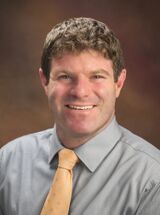
Degrees:
B.A. (Neurobiology) Harvard University, 1999. Ph.D. (Physiology & Neuroscience) New York University School of Medicine, 2006. M.D. (Medicine) New York University School of Medicine, 2008.
Research Interests:
The lab studies mechanisms of cerebral cortex circuit function and circuit dysfunction in neurodevelopmental disorders towards the development of mechanistically-informed, targeted therapies.
Clinical Specialties:
Pediatric neurology; neurogenetics.
Keywords: Epilepsy; neurodevelopment; electrophysiology; ion channels; human neurogenetics.
Office Address:
The Children's Hospital of Philadelphia
Abramson Research Center
Room 502A
3615 Civic Center Boulevard
Philadelphia, PA 19104
(215) 590-6894
Email
Goldberg Neruo Lab
Mentor Training Completed
Unconscious Bias Trained
Grad Group Affiliations: NGG (Neuroscience Graduate Group)
Languages Spoken: English
Robert C. Gorman, MD

Degrees:
B.S.Ch.E. (Chemical Engineering) Newark College Of Engineering, New Jersey Institute Of Technology, Newark, NJ , 1984. MD (Medicine) Robert Wood Johnson Medical School/University Of Medicine And Dentistry Of New Jersey, Piscataway, NJ, 1989.
Email
Gorman Cardiovascular Research Group
Mentor Training Completed
Grad Group Affiliations: BE (Bioengineering)
Languages Spoken: English
Roger A. Greenberg, MD, PhD
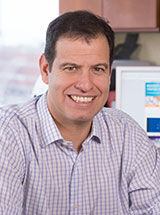
Degrees:
BA (Chemistry) Haverford College, 1991. Ph.D. (Microbiology And Immunology) Albert Einstein College Of Medicine, 2000. M.D. Albert Einstein College Of Medicine, 2000. Residency in Clinical Pathology, Brigham and Women's Hospital 2003.
Research Interests:
This laboratory is devoted to understanding basic mechanisms of DNA repair and their impact on genome integrity, cancer etiology and response to targeted therapies. To investigate these interrelationships, we are devoted to elucidating BRCA1- and BRCA2- dependent homologous recombination mechanisms in breast and ovarian cancer, telomere length maintenance mechanisms that rely on a specialized form of homologous recombination, and DNA damage induced activation of immune responses to cancer. We utilize a myriad of approaches to investigate these areas, which include biochemistry, structural biology, cell biology, and genetically engineered mouse models.
Keywords: BRCA1, BRCA2, DNA repair, Homologous Recombination, Telomeres, Epigenetics, Breast Cancer, Ovarian Cancer, cytokines, immune therapy.
Office Address:
BRB II/III, Rm 513
421 Curie Boulevard
Philadelphia PA, 19104
(215) 746-2738
Email
Penn Directory
Unconscious Bias Trained
Grad Group Affiliations: CAMB (Cell and Molecular Biology), BMB (Biology and Molecular Biophysics), BE (Bioengineering)
Languages Spoken: English
Elizabeth Grice, PhD

Degrees:
B.A. (Biology) Luther College, 2001. Ph.D. (Human Genetics) Johns Hopkins University, 2006.
Research Interests:
Genomic and metagenomic approaches to understand cutaneous host-microbe interactions in health and disease.
Keywords: host-microbe interactions, skin microbiome, metagenomics, wound healing, chronic wounds
Office Address:
BRB II/III, Rm 1015
421 Curie Boulevard
Philadelphia PA, 19104
(215) 898-3179
Email
Grice Lab
Mentor Training Completed
Unconscious Bias Trained
Grad Group Affiliations: CAMB (Cell and Molecular Biology), GCB (Genomics and Computational Biology)
Languages Spoken: English
Malay Haldar, MD, PhD
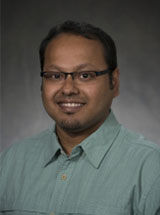
Degrees:
MBBS (Medicine) B.J. Medical College, University Of Pune, Pune, Maharashtra, India, 2001. PhD (Human Genetics) University Of Utah, Salt Lake City, UT, 2007.
Clinical Specialties:
Molecular Diagnostics; Diagnostic Pathology.
Keywords: Tumor Immunology, Macrophage, Dendritic Cells, Monocytes, Sarcoma
Office Address:
BRB II/III, Rm 413
421 Curie Boulevard
Philadelphia PA, 19104
Email
Haldar Lab
Unconscious Bias Trained
Grad Group Affiliations: CAMB (Cell and Molecular Biology), IGG (Immunology Graduate Group), PGG (Pharmacology Graduate Group)
Languages Spoken: English
Scott D. Halpern, MD, PhD, MBe
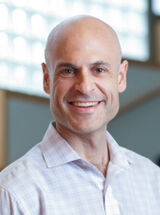
Degrees:
B.S. (Psychology And Economics) Duke University, 1995. M.S.C.E. (Epidemiology) University Of Pennsylvania, 2001. Ph.D. (Epidemiology) University Of Pennsylvania, 2002. M.Be (Bioethics) University Of Pennsylvania, 2002. M.D. (Medicine) University Of Pennsylvania, 2003.
Clinical Specialties:
Critical care medicine.
Keywords: End-of-Life; Epidemiology; Health Services Research; Medical Ethics
Email
Palliative and Advanced Illness Research Center
Unconscious Bias Trained
Grad Group Affiliations: GGEB (Epidemiology and Biostatistics)
Languages Spoken: English
Kathryn Hamilton, PhD

Degrees:
BA (Biology) Assumption College, 2003. PhD (Cell And Molecular Physiology) University Of North Carolina Chapel Hill, 2010.
Research Interests:
The gut epithelium acts as an arbiter between harmful substances in the external environment and the human body. Our laboratory specializes in understanding mechanisms regulating the gut epithelium in health and disease. We use in vivo models and mouse/human 3D enteroid and colonoid (organoid) lines to understand the molecular basis of intestinal regeneration and inflammatory bowel disease (IBD). Within these contexts, we are interested in how RNA binding proteins impart global, post-transcriptional regulation of key pathways in normal physiology and pathophysiology.
Keywords: gastrointestinal stem cell biology, epithelial regeneration, inflammatory bowel disease (IBD), organoid models of disease, in vivo models of disease, patient tissue-derived organoids
(267) 426-5266
Email
Hamilton Laboratory
Mentor Training Completed
Unconscious Bias Trained
Grad Group Affiliations: CAMB (Cell and Molecular Biology)
Languages Spoken: English
Roy Hamilton, MD, MS
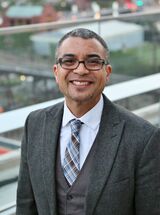
Degrees:
B.A. (Psychology, magna cum laude) Harvard University, 1995. M.S. (Health Sciences and Technology) Massachusetts Institute of Technology , 2001. M.D. (Medicine, cum laude) Harvard Medical School, 2001.
Roles:
Assistant Dean for Cultural Affairs and Diversity, PSOM
Vice Chair for Inclusion and Diversity, Department of Neurology
Research Interests:
My research focus is on the characteristics and limits of functional neuroplasticity in the adult human brain. I investigate how the brain reorganizes itself in response to injury, and whether or not it is possible to enhance the brain's potential for reorganization in order to speed rehabilitation using noninvasive electrical or magnetic brain stimulation. A second area of interest for me is on the use of noninvasive brain stimulation to elucidate and enhance mechanisms of cognition in healthy individuals, and the biological, social, and ethical implications of neural enhancement.
Clinical Specialties:
Cognitive and behavioral neurology.
Keywords: Transcranial Magnetic Stimulation, Aphasia, Transcranial Direct Current Stimulation, Cognitive Neuroscience, Neuromodulation
Ronald N. Harty, PhD
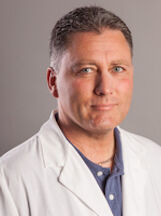
Degrees:
BS (Biology) University of Lowell, Massachusetts, 1985 Ph.D. (Microbiology/Virology) Louisiana State University Medical Center, 1991 Postdoc (Virology) Mount Sinai School of Medicine, New York, 1993
Research Interests:
Antiviral immune responses, Ebola, Marburg, Rabies, VSV, Lassa Fever, Junin, Innate immunity, Innate Immune Defense, Virus-host interaction, Zoonotic diseases, Antiviral therapeutics
Keywords: Antiviral immune responses, Ebola, Marburg, Rabies, VSV, Lassa Fever, Junin, Innate immunity, Innate Immune Defense, Virus-host interaction, Zoonotic diseases, Antiviral therapeutics
Office Address:
School of Veterinary Medicine
3800 Spruce Street
University of Pennsylvania
Philadelphia, PA 19104
(215) 573-4485
PennVet Faculty Page
Mentor Training Completed
Unconscious Bias Trained
Grad Group Affiliations: CAMB (Cell and Molecular Biology)
Languages Spoken: English
Jorge Henao-Mejia, MD, PhD

Degrees:
M.D. (Medicine) University Of Antioquia, Colombia, 2005. Ph.D. (Microbiology And Immunology) Indiana University, 2009.
Keywords: Immunology, gene expression, host metabolism
Office Address:
Biomedical Research Building II/III, Room 312
421 Curie Boulevard
Philadelphia PA, 19104
(215) 898-2212
Email
Mentor Training Completed
Unconscious Bias Trained
Grad Group Affiliations: CAMB (Cell and Molecular Biology), IGG (Immunology Graduate Group)
Languages Spoken: Spanish, English
Sarah Henrickson, MD, PhD
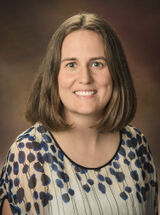
Degrees:
AB in Biochemical Sciences Harvard University, 2001. PhD in Immunology Harvard Medical School, 2008. MD Harvard Medical School, 2011.
Research Interests:
Human Immunology; Immune Dysregulation; Mouse models of disease; Primary Immune Deficiency; Asthma; Obesity.
Clinical Specialties:
Allergy Immunology.
Keywords: Immune dysregulation, T cell function, chronic inflammation (obesity, asthma), primary immune deficiency
Office Address:
ARC Allergy Immunology
34th and Center Boulevard
Philadelphia Children's Hospital
Philadelphia, PA 19104-4399
Email
Henrickson Lab
Mentor Training Completed
Unconscious Bias Trained
Grad Group Affiliations: CAMB (Cell and Molecular Biology), IGG (Immunology Graduate Group)
Languages Spoken: English
Scott E. Hensley, PhD
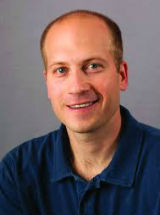
Degrees:
BA (Biology) University of Delaware, 2000. PhD (Cell and Molecular Biology) University of Pennsylvania, 2006.
Research Interests:
Influenza virus; SARS-CoV-2; antibodies; antigenic drift; vaccines.
Keywords: Influenza virus, SARS-CoV-2, antigenic drift, viral pathogenesis, viral receptors, antibody specificity, vaccines
Mentor Training Completed
Unconscious Bias Trained
Grad Group Affiliations: CAMB (Cell and Molecular Biology), IGG (Immunology Graduate Group)
Languages Spoken: English
De'Broski R. Herbert, PhD

Degrees:
BS (Microbiology) Xavier University of Louisiana, 1994. PhD (Immunology) Thomas Jefferson University, 2000.
Research Interests:
Regulatory networks, Immunity, Inflammation, Tissue repair, Mucosal interface, Helminth infection, Lung and intestinal injury, Transgenic mice.
Keywords: Type 2 immunity, mucosal inflammation, parasite infection
Office Address:
3800 Spruce St.
Rm 367 OVQ Bldg.
School of Veterinary Medicine
Philadelphia, PA19130
(215) 898-9151
Email
Herbert Lab
Mentor Training Completed
Unconscious Bias Trained
Grad Group Affiliations: IGG (Immunology Graduate Group), MVP (Microbiology, Virology and Parasitology)
Languages Spoken: English
Robert O. Heuckeroth, MD, PhD
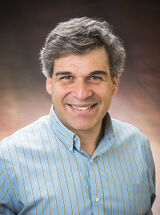
Degrees:
B.S. (Chemistry, Summa Cum Laude With High Honors In Chemistry) University Of Maryland, 1983. Ph.D. (Biochemistry) Washington University School Of Medicine, St. Louis, 1990. M.D. Washington University School Of Medicine, St. Louis, 1990.
Research Interests:
We are interested in developing new ways to diagnose, treat and cure bowel motility disorders. Bowel motility is controlled by a complex nervous system within the bowel wall called the "enteric nervous system" (ENS), by pacemaker cells and by bowel smooth muscle among other cell types. Our work is a mixture of developmental biology, genetics, cell biology, biochemistry, stem cell biology, imaging, and includes translational studies focused on the ENS and smooth muscle. These reviews written by MSTP students in my lab are a good introduction to the field:
Hashmi SK, Ceron RH, Heuckeroth RO. (2021) Visceral myopathy: clinical syndromes, genetics, pathophysiology, and fall of the cytoskeleton. Am J Physiol Gastrointest Liver Physiol. 2021 Jun 1;320(6):G919-G935. doi: 10.1152/ajpgi.00066.2021. Epub 2021 Mar 17.
Schneider S, Wright CM, Heuckeroth RO. (2019) Unexpected Roles for the Second Brain: Enteric Nervous System as Master Regulator of Bowel Function. Annu Rev Physiol. 2019 Feb 10;81:235-259. doi: 10.1146/annurev-physiol-021317-121515. Epub 2018 Oct 31.
Clinical Specialties:
Pediatric gastroenterology with a focus on bowel motility disorders.
Keywords: Enteric nervous system Hirschsprung disease ACTG2 Visceral myopathy Chronic intestinal pseudo-obstruction Bowel motility disorders Neural crest
Office Address:
Abramson Research Center, 1116i
3615 Civic Center Boulevard
Philadelphia, PA 19104
Email
Heuckeroth Lab
Unconscious Bias Trained
Grad Group Affiliations: CAMB (Cell and Molecular Biology), IGG (Immunology Graduate Group), NGG (Neuroscience Graduate Group), BE (Bioengineering)
Languages Spoken: English
David Hill, MD, PhD
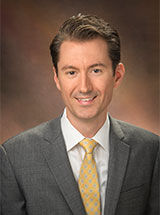
Degrees:
BS (Biological Sciences, With Honors) Carnegie Mellon University, 2005. PhD (Cell And Molecular Biology) Perelman School Of Medicine, University Of Pennsylvania, David Artis Lab, 2011. MD (Medicine) Perelman School Of Medicine, University Of Pennsylvania, 2013.
Roles:
Our research group seeks to understand how the immune system contributes to the two most common chronic diseases of childhood: allergy and obesity. We use clinical and epidemiological information to guide basic and translational research aimed at understanding the genetic, molecular, and immunologic basis of these diseases. By studying disease mechanisms in our lab, we are poised to lead the development of new preventative and therapeutic approaches for these important conditions.
Research Interests:
The Hill Lab studies how diet and metabolism influence immune health and inflammatory disease. Our goal is to make impactful discoveries that aid in the prevention, diagnosis, or treatment of food allergy, asthma, and obesity-associated inflammation, among other conditions. We use clinical and epidemiological information to guide basic and translational research aimed at understanding the genetic, molecular, and immunologic basis of immune disease. By studying disease mechanisms in our lab, we are poised to lead the development of new preventative and therapeutic approaches for these important conditions.
Clinical Specialties:
Pediatric Allergy and Immunology.
Keywords: Allergy, obesity, obesity associated asthma, food allergy, asthma, diabetes, metabolism, immunometabolism
Office Address:
Abramson Pediatric Research Center, Room 1208B
3615 Civic Center Blvd.
Philadelphia, PA 19104
(267) 425-5796
Email
Hill Lab
Mentor Training Completed
Unconscious Bias Trained
Grad Group Affiliations: CAMB (Cell and Molecular Biology), IGG (Immunology Graduate Group)
Languages Spoken: English
John Holmes, PhD, PhD, FACE, FACMI
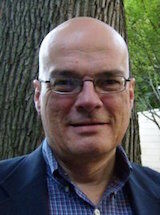
Degrees:
A.B. (Sociology) University Of Pennsylvania, 1976. M.S. (Information Systems) Drexel University, 1987. Ph.D. (Information Science) Drexel University, 1996.
Research Interests:
Medical informatics; data mining; evolutionary computation; machine learning; artificial intelligence; database design and implementation for clinical research; medical decision making.
Keywords: Epidemiology, Injury, Social determinants of disease, Machine learning, Biomedical informatics (not bioinformatics), Agent-based modeling, Social network analysis
Office Address:
Blockley Hall, Rm 401
423 Guardian Drive
Philadelphia PA, 19104
(215) 898-4833
Email
DBEI Profile
Unconscious Bias Trained
Grad Group Affiliations: GCB (Genomics and Computational Biology), GGEB (Epidemiology and Biostatistics)
Languages Spoken: English, Italian
Erika L.F. Holzbaur, PhD

Degrees:
B.S. (Chemistry/History) College Of William And Mary, 1982. Ph.D. (Biochemistry) Pennsylvania State University, 1987.
Research Interests:
Our lab studies the dynamics of organelle motility along the cellular cytoskeleton, driven by the microtubule motors cytoplasmic dynein and kinesin. We are interested in the mechanisms leading to coordinated motor activity, required to drive organelle transport over distance of up to 1 meter in neuronal axons. We also investigate the cellular mechanisms leading to neurodegeneration, including the dynamics of autophagy and mitophagy in neurons. Our work was the first to identify a key role for optineurin in the clearance of damaged mitochondria via mitophagy, downstream of PINK1 kinase and the E3 ubiquitin ligase parkin. As mutations in optineurin and the associated kinase TBK1 cause familial ALS, and mutations in PINK1 and parkin cause familial Parkinson's disease, this discovery demonstrates that the failure to clear damaged mitochondria is likely to contribute to the pathogenesis observed in multiple forms of neurodegeneration, a hypothesis currently under investigation in our lab. Together, we have developed a significant record of contributions to neuronal cell biology, focusing on the cellular and biophysical analysis of molecular motors, the mechanistic analysis of organelle trafficking, the elucidation of pathways for autophagy and mitophagy in neurons, and an improved understanding of pathogenic mechanisms leading to neurodegenerative disease.
Keywords: Cytoplasmic dynein, dynactin, kinesin, microtubules, autophagy, mitophagy, neurodegeneration.
Office Address:
Department of Physiology
University of Pennsylvania Perelman School of Medicine
638A Clinical Research Building
415 Curie Boulevard
Philadelphia, PA 19104-6085
(215) 573-3257
Email
Holzbaur Lab
Mentor Training Completed
Unconscious Bias Trained
Grad Group Affiliations: CAMB (Cell and Molecular Biology), BMB (Biology and Molecular Biophysics), NGG (Neuroscience Graduate Group)
Languages Spoken: English
Alex Hughes, PhD
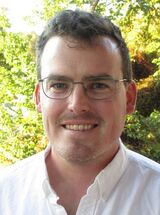
Degrees:
BE (Chemical & Materials Engineering) University of Auckland, 2008. BSc (Pharmacology) University of Auckland, 2008. PhD (Bioengineering) University of California, Berkeley, 2013.
Research Interests:
Our lab works to bring developmental processes that operate in vertebrate embryos and regenerating organs under an engineering control framework, so that we can build better tissues. We study how cells conspire to create complex structures, so that we can build models of human disease, reconstituted tissues for regenerative medicine, and new types of biological machines.
Keywords: Developmental engineering, epithelial morphogenesis, microfluidics, mechanics of development, kidney organogenesis.
Unconscious Bias Trained
Grad Group Affiliations: CAMB (Cell and Molecular Biology), BE (Bioengineering)
Languages Spoken: English
Christopher Hunter, PhD
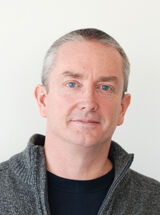
Degrees:
B.Sc (Zoology, specializing in Parasitology) University of Glasgow, 1985 Ph.D. University of Glasgow, 1989
Research Interests:
Infectious Disease, Toxoplasma gondii, Zoonotic diseases, Host-pathogen interactions, Immunology, Parasites, Parasitology, Transgenic parasites, Inflammatory responses.
Keywords: Cytokine, infection, brain, inflammation, gut, T cells
Mentor Training Completed
Grad Group Affiliations: CAMB (Cell and Molecular Biology), IGG (Immunology Graduate Group)
Languages Spoken: English
David Issadore, PhD
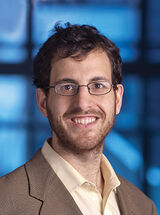
Degrees:
PhD (Applied Physics,) Harvard.
Research Interests:
Our lab combines microelectronics, microfluidics, nanomaterials, and machine learning to solve big problems in healthcare. We create miniaturized platforms for the diagnosis of disease, we develop new platforms to manufacture micro and nanomaterials, and we dip our toes into an assortment of other areas where we can leverage our engineering training to improve healthcare. This work requires an interdisciplinary approach in which engineers, scientists, and physicians work together to solve high impact problems in healthcare.
Keywords: microfluidics, exosomes, medical diagnostics, microparticles, nanoparticles, drug formulations.
Office Address:
Hayden Hall, Rm 312
3320 Smith Walk
Philadelphia PA, 19104
issadore@seas.upenn.edu
Email
SEAS Profile
Mentor Training Completed
Unconscious Bias Trained
Grad Group Affiliations: BE (Bioengineering), ESE (Electrical and Systems Engineering), MEAM (Mechanical Engineering and Applied Mechanics), CBE (Chemical and Biomolecular Engineering)
Languages Spoken: English
Rajan Jain, MD

Degrees:
BA (Molecular And Cellular Biology) University Of California, Berkeley, 2001. MD New York University School Of Medicine, 2005.
Research Interests:
We are interested in how genome organization shapes organogenesis.
Clinical Specialties:
Cardiology.
Keywords: Nuclear architecture, gene regulation, chromatin, epigenetics, 3D genome organization, heart development, stem cell biology
F. Bradley Johnson, MD, PhD
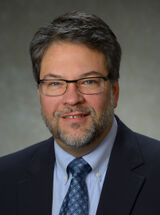
Degrees:
B.S. (Molecular Biophysics & Biochemistry) Yale University , 1987. M.D. Stanford University School of Medicine, 1995. Ph.D. (Biochemistry) Stanford University School of Medicine , 1995.
Research Interests:
Molecular biology of aging, cell senescence, telomeres, dyskeratosis congenita, pulmonary fibrosis, colon cancer, neurodegeneration, transplantation.
Clinical Specialties:
Transplant Immunology (HLA and Histocompatibility)
Keywords: Aging, telomeres, cell senescence, dyskeratosis congenita, pulmonary fibrosis, colon cancer, neurodegeneration, transplantation.
Office Address:
Stellar-Chance Laboratories, 405A
422 Curie Blvd
Philadelphia, PA 19104-6100
(610) 906-4198
Email
Mentor Training Completed
Unconscious Bias Trained
Grad Group Affiliations: CAMB (Cell and Molecular Biology), BMB (Biology and Molecular Biophysics)
Languages Spoken: English
Michelle Johnson, PhD

Degrees:
BS (Mechanical Engineering And Applied Mechanics) University Of Pennsylvania, 1990. MS (Mechanical Engineering (Emphasis In Robot Mechanical System) University Of California, Irvine, 1994. PhD (Mechanical Engineering (Emphasis In Robotics, Design, Controls And Mechatronics) Stanford University, 2002.
Research Interests:
My research is mainly in the area of robot-mediated rehabilitation. I am focused on the investigation and rehabilitation of dysfunction due to aging, neural disease, and neural injury. I am particularly interested in 1) exploring the relationships between brain plasticity and behavioral/motor control using robotics; 2) quantifying motor/cognitive impairment effects on motor control of the upper limb in real world tasks; 3) defining methods to maintain therapeutic effectiveness while administering local and remote, robot-mediated interventions in high and low resource settings; 4) global and affordable technology-mediated interventions after brain injury.
Keywords: Robotics, stroke rehabilitation, brain injury and recovery, HIV, motor and cognitive impairment, upper limb
(215) 893-2665
Email
The Rehabilitation Robotics Lab
Unconscious Bias Trained
Grad Group Affiliations: NGG (Neuroscience Graduate Group), BE (Bioengineering), MEAM (Mechanical Engineering and Applied Mechanics)
Languages Spoken: English
Kevin B. Johnson, MD, MS
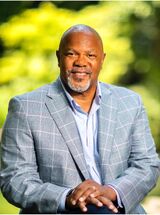
Degrees:
B.S. (Honors, Biology) Dickinson College, 1983. M.D. (Medicine) Johns Hopkins University School Of Medicine, 1987. M.S. (Medical Informatics) Stanford University, 1992.
Research Interests:
My reseearch interests focus on the development and evaluation of clinical information systems that improve patient safety and compliance with practice guidelines.
Currently, my lab is exploring how artificial intelligence can reinvent clinical encounters and the work resulting from those interactions.
I lead a project called REDUCE, which uses video and audio recordings of clinical visits to gain necessary insights to improve patient-provider interactions on both sides. The goal is to remove clinicians from the secretary position that EHRs have put them in, reduce the burnout caused by the burden of documentation, and restore a more connected patient encounter. While the visit is being recorded, AI will summarize the appointment qualitatively, quantitatively, and equitably, and provide assessment based on symptoms shared verbally as well as those captured visibly by the technology. The long-term goal is to provide real-time automated guidance.
I'm also passionate about educating lay audiences about informatics. My podcast, Informatics in the Round, features lively, non-technical conversations on hot-button cultural issues from an informatics perspective. I'm co-author and co-editor of the Who Me? children's book series featuring scientists from marginalized groups, encouraging young children to consider careers in STEMM. I also produced and directed the documentary No Matter Where about the challenges of sharing information across the healthcare system, how these communication failures impact patients and providers, and the changes that must occur to create a safer world.
I'm curious, but also a "completer." I enjoy working with smart, hardworking, and fun people, and consider mentoring a vital part of what I do. I love working with teams, and look forward having MSTP trainees on mine!
Keywords: Electronic Health Records, Clinical Informatics, AI in Medicine, Science Communication
Office Address:
B202 Richards Building
3700 Hamilton Walk
University of Pennsylvania
Philadelphia, PA 19104-6116
(215) 573-5885
Email
Kevin B. Johnson Lab
Mentor Training Completed
Unconscious Bias Trained
Grad Group Affiliations: GCB (Genomics and Computational Biology), BE (Bioengineering), CIS (Computer and Information Science)
Languages Spoken: English
Eric Joyce, PhD
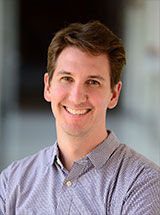
Degrees:
B.A. (Genetics And Microbiology) Rutgers University, 2004. Ph.D. (Microbiology And Molecular Genetics) Rutgers University, 2010.
Research Interests:
The Joyce lab studies how chromosomes are functionally organized and folded in 3-D space and time. Our primary goal is to understand how the structure and position of chromosomes within the nucleus is established and inherited across cell divisions, and how dysfunctional organization contributes to genome instability. To this end, we develop and utilize technologies to visualize chromosomes and subchromosomal regions at single-cell resolution and in a high-throughput fashion. Our research takes advantage of both Drosophila and mammalian systems as models for chromosome function, which allows us to directly address the conservation and health relatedness of the mechanisms we discover.
Office Address:
Clinical Research Building, Rm 564
415 Curie Boulevard
Philadelphia PA, 19104
Email
Eric Joyce Lab
Mentor Training Completed
Unconscious Bias Trained
Grad Group Affiliations: CAMB (Cell and Molecular Biology), GCB (Genomics and Computational Biology)
Languages Spoken: English
Kellie Jurado, PhD

Degrees:
B.S. (Biology, Microbiology) New Mexico State University, 2011. Ph.D. (Medical Sciences) Harvard University, 2015.
Research Interests:
Our research group focuses on delineating disease pathogenesis of emerging viruses in order to uncover mechanisms of immune control. We primarily focus on emerging viral pathogens that present with unknown mechanisms of disease in the nervous system or placenta. Both regions of infection have interfaces (maternal-fetal and blood-brain) that provide extra protection to an essential organ or allogenic fetus. These interfaces necessitate a delicate balance of initiating an effective antiviral response while also ensuring that there is limited damage and tolerance is maintained. In order to achieve this balance, immune responses in these regions have evolved intricate layers of distinct control which are only now beginning to be fully appreciated.
Mentor Training Completed
Unconscious Bias Trained
Grad Group Affiliations: CAMB (Cell and Molecular Biology), IGG (Immunology Graduate Group)
Languages Spoken: English
Michael J. Kahana, PhD

Degrees:
BA, Case Western Reserve University. Ph.D., Psychology, University of Toronto
Roles:
Edmund J. and Louise W. Kahn Term Professor of Psychology
Research Interests:
Memory, learning, neuromodulation.
Keywords: Behavioral Neuroscience; Cognitive Neuroscience; Memory and Learning
Email
Computational Memory Lab
Mentor Training Completed
Unconscious Bias Trained
Grad Group Affiliations: NGG (Neuroscience Graduate Group)
Languages Spoken: English
Mark L. Kahn, MD

Degrees:
B.A. (Biology) Brown University, 1984. M.D. (Medicine) Brown University School of Medicine, 1987.
Research Interests:
The Kahn Lab investigates signaling pathways in endothelial cells and other cell types in the cardiovascular system. We investigate mechanisms of disease related to both the blood and lymphatic vascular networks as well as those connecting vascular biology and thrombosis.
Keywords: Vascular biology, cardiovascular disease, vascular signaling pathways
Office Address:
Smilow Center for Translational Research, 11-123
3400 Civic Center Blvd
Philadelphia PA 19104
(215) 898-9007
Email
Kahn Lab
Mentor Training Completed
Unconscious Bias Trained
Grad Group Affiliations: CAMB (Cell and Molecular Biology), IGG (Immunology Graduate Group), PGG (Pharmacology Graduate Group)
Languages Spoken: English, Italian
Taku Kambayashi, MD, PhD
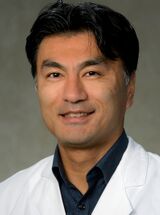
Degrees:
B.S. (Biomedical Engineering), Johns Hopkins University, Baltimore, MD, 1993 Ph.D. (Immunology), Emory University, Atlanta, GA, 2002 M.D. (Medicine), Emory University, Atlanta, GA, 2004.
Research Interests:
Regulation of T cell responses; regulatory T cell expansion and homeostasis; Regulation of skin barrier function; cell signaling.
Clinical Specialties:
Transfusion Medicine
Keywords: CD8+ T cells, CD4+ T cells, Regulatory T cells, NK cells, Signal Transduction, Cellular Immunology, Antigen Presentation
Office Address:
John Morgan Building, Rm 288
3620 Hamilton Walk
Philadelphia PA, 19104
(610) 850-4152
Email
Mentor Training Completed
Unconscious Bias Trained
Grad Group Affiliations: IGG (Immunology Graduate Group)
Languages Spoken: English, Japanese
Matthew Kayser, MD, PhD
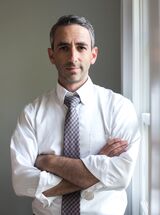
Degrees:
ScB (Neuroscience) Brown University, 2000. MD, PhD (Neuroscience) University of Pennsylvania School of Medicine, 2009.
Research Interests:
We study how neural circuits give rise to complex behaviors, and how dysfunction of neural processes can cause mental illness. Our particular focus is in understanding how sleep -- a highly conserved behavior whose core function remains a mystery -- contributes to sculpting brain circuits during development and in other times of life.
Clinical Specialties:
Psychiatry; sleep mental health
Keywords: Sleep, synapse, development, drosophila, psychiatry, behavior
Office Address:
Clinical Research Building, Rm 320
415 Curie Boulevard
Philadelphia PA, 19104
Email
Kasyer Lab
Mentor Training Completed
Unconscious Bias Trained
Grad Group Affiliations: CAMB (Cell and Molecular Biology), NGG (Neuroscience Graduate Group), PGG (Pharmacology Graduate Group)
Languages Spoken: English
Max B. Kelz, MD, PhD
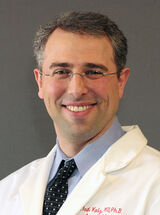
Degrees:
MS (Molecular Biophysics And Biochemistry) Yale University, 1993. BS (Molecular Biophysics And Biochemistry) Yale University, 1993. PhD (Neuroscience) Yale University, 1999. MD (Medicine) Yale University, 2000.
Research Interests:
Molecular Mechanisms of Anesthetic Action; Neurobiology of Sleep; Wake Regulation; Mouse Genetics; Anesthetic pharmacology; Hibernation and Hypometabolic states; Disorders of Consciousness.
Clinical Specialties:
I am an anesthesiologist and sub specialize in neuroanesthesia.
Keywords: Sleep, Impaired Arousal, Sedation, Hypnosis, Hypothalamic Neurobiology
Office Address:
John Morgan Building, Rm 339
3620 Hamilton Walk
Philadelphia PA, 19104
(215) 573-8208
Email
Kelz Lab
Mentor Training Completed
Unconscious Bias Trained
Grad Group Affiliations: NGG (Neuroscience Graduate Group), PGG (Pharmacology Graduate Group), BE (Bioengineering)
Languages Spoken: English
Peter S. Klein, MD, PhD
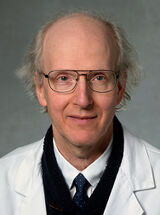
Degrees:
B.A. (Biochemistry) Harvard College, 1980. M.D. (Medicine) Johns Hopkins University School of Medicine, 1988. Ph.D. (Biological Chemistry) Johns Hopkins University School of Medicine, 1988.
Research Interests:
We study Wnt signaling in normal and malignant hematopoietic stem cells. We investigate how Wnt signaling regulates chromatin structure and in hematopoietic stem cells and in early vertebrate embryos. We also study the pharmacology of litihum action in bipolar disorder with a focus on glycogen synthase kinase-3 (GSK-3). Recent work investigates the regulation of mRNA splicing by GSK-3 in leukemic cells.
Clinical Specialties:
Hematology
Keywords: Wnt, signal transduction, hematopoiesis, splicing, leukemia, stem cell, GSK-3, mTOR, epigenetics
Office Address:
Smilow Center for Translational Research, 9-103
3400 Civic Center Boulevard
Philadelphia PA, 19104
(215) 898-2179
Mentor Training Completed
Unconscious Bias Trained
Grad Group Affiliations: CAMB (Cell and Molecular Biology), PGG (Pharmacology Graduate Group)
Languages Spoken: English
Rahul M. Kohli, MD, PhD
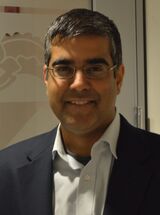
Degrees:
B.S. (Biochemistry) University Of Michigan, 1998. M.D. Harvard Medical School, 2004. Ph.D. (Biochem & Mol Pharm) Harvard Medical School, 2004.
Research Interests:
Our laboratory focuses on the DNA modifying enzymes that provide an added layer of complexity to the genome. These enzymes can be involved in the purposeful introduction of mutations or in the chemical modification of nucleobases, making DNA a remarkably dynamic entity. Many of these processes are at the heart of the battle between the immune system and pathogens or are central to epigenetics.
Our research program aims to understand diversity generating enzymes and pathways in vitro, to perturb their function in physiological settings, and to harness the biotechnological potential of these diversity-generating pathways.
Clinical Specialties:
Infectious Diseases, Internal Medicine
Keywords: Genome Engineering, Epigenetics, DNA modification, Antibiotic Resistance, Bacterial Pathogens
Office Address:
Johnson Pavilion, Rm 502B
3610 Hamilton Walk
Philadelphia PA, 19104
(215) 573-7523
Email
Kohli Lab
Mentor Training Completed
Unconscious Bias Trained
Grad Group Affiliations: CAMB (Cell and Molecular Biology), BMB (Biology and Molecular Biophysics), IGG (Immunology Graduate Group), PGG (Pharmacology Graduate Group)
Languages Spoken: English
Mitchell A. Lazar, MD, PhD

Degrees:
S.B. (Chemistry) Massachusetts Institute Of Technology, 1976. Ph.D. (Neuroscience) Stanford Univerity, 1981. M.D. Stanford Univerity, 1982.
Research Interests:
Epigenomic regulation of transcription and metabolism by nuclear receptors; mechanism of obesity-associated insulin resistance and diabetes; circadian regulation of metabolism.
Keywords: diabetes, endocrinology, epigenomics, nuclear receptors, circadian rhythms
Office Address:
Institute for Diabetes, Obesity, and Metabolism
University of Pennsylvania Perelman School of Medicine
12-102 Smilow Center for Translational Research
3400 Civic Center Boulevard
Philadelphia, PA 19104 USA
(215) 898-0198
Email
Lazar Lab
Mentor Training Completed
Unconscious Bias Trained
Grad Group Affiliations: CAMB (Cell and Molecular Biology), GCB (Genomics and Computational Biology), BMB (Biology and Molecular Biophysics), PGG (Pharmacology Graduate Group)
Languages Spoken: English
Edward B. Lee, MD, PhD
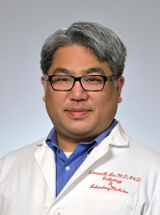
Degrees:
BS (Biological Sciences), Stanford University, 1997. PhD (Neuroscience), University of Pennsylvania School of Medicine, 2004. MD University of Pennsylvania School of Medicine, 2005.
Research Interests:
Alzheimer's disease, Frontotemporal lobar degeneration, Amyotrophic lateral sclerosis
Clinical Specialties:
Neuropathology
Keywords: Neurodegenerative Disease Frontotemporal Dementia Alzheimer's Disease Tau TDP-43 VCP
Office Address:
Stellar-Chance Laboratories, Rm 613A
422 Curie Blvd
Philadelphia, PA 19104
(215) 898-0908
Email
Translational Neuropathology Research Laboratory
Mentor Training Completed
Unconscious Bias Trained
Grad Group Affiliations: CAMB (Cell and Molecular Biology), BMB (Biology and Molecular Biophysics), NGG (Neuroscience Graduate Group), PGG (Pharmacology Graduate Group)
Languages Spoken: English
Christopher Lengner, PhD
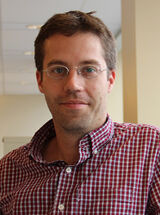
Degrees:
B.S. (Biotechnology) Worcester Polytechnic Institute, 1998. Ph.D. (Cell and Molecular Biology) University of Massachusetts Medical School, 2004
Research Interests:
Intestinal epithelial stem cell biology and tissue regeneration, Colorectal cancer initiation, progression, and metastasis, organoid models of human telomere disorders, genetic tool development (evolving barcode systems, CRISPR-Cas9 forward genetic screening, mouse genetic models).
Keywords: Cancer, stem cells, lineage tracing, CRISPR-Cas9, mouse genetics, organoids.
Office Address:
School of Veterinary Medicine
Rosenthal 390EA
3800 Spruce Street
(215) 746-8425
Email
Unconscious Bias Trained
Grad Group Affiliations: CAMB (Cell and Molecular Biology)
Languages Spoken: English
Michael Z. Levy, PhD
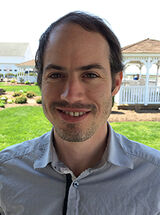
Degrees:
B.A. (Interdisciplinary Major (Philosophy And Biology)) Amherst College, 1998. PhD (Population Biology, Ecology And Evolution) Emory University, 2007.
Research Interests:
I study insects and human health.
Keywords: Chagas disease, vector control, disease ecology, insect declines
Office Address:
Blockley Hall, Rm 714
423 Guardian Drive
Philadelphia PA, 19104
(215) 746-8131
Email
UPENN- UPCH Zoonotic Disease Research Center
Unconscious Bias Trained
Grad Group Affiliations: GCB (Genomics and Computational Biology), GGEB (Epidemiology and Biostatistics), Biology
Languages Spoken: Spanish, English
Mingyao Li, PhD

Degrees:
B.S. (Mathematics) Nankai University, China, 1996. M.S. (Mathematics) Nankai University, China, 1999. M.S. (Biostatistics) University Of Michigan, Ann Arbor, 2002. Ph.D. (Biostatistics) University Of Michigan, Ann Arbor, 2005.
Research Interests:
Identification of disease genes for human diseases; Development of statistical and computational methods for genomics data
Keywords: single-cell genomics, spatial transcriptomics, spatial metabolomics, digital pathology
Office Address:
Blockley Hall, Rm 213
423 Guardian Drive
Philadelphia, PA 19104
Email
Laboratory for Statistical and Translational Genomics
Mentor Training Completed
Unconscious Bias Trained
Grad Group Affiliations: GCB (Genomics and Computational Biology), GGEB (Epidemiology and Biostatistics)
Languages Spoken: English
Carman Li, PhD

Degrees:
Postdoctoral Fellowship, Harvard Medical School. Ph.D., Massachusetts Institute of Technology. A.B., Princeton University.
Research Interests:
The Carman Li lab studies unexplored mechanisms and therapeutic opportunities of hereditary cancers, particularly BRCA1/2 breast cancers, with the ultimate goal of improving patient outcomes. We use advanced methodologies, including genetically engineered mouse models, organoid cultures, patient samples, and single-cell omics to study hereditary cancers in a tractable and physiological manner. Our long-term goal is to build a unifying paradigm of hereditary cancers, with shared principles and disease-specific mechanisms. Insights from these studies can also shed light on non-hereditary cancers.
Keywords: Hereditary cancers, BRCA1/2 breast cancers, genetically engineered mouse models, single-cell omics
Office Address:
BRB II/III, Room 752
421 Curie Blvd
Philadelphia, PA 19104
Carman Li Lab
Mentor Training Completed
Grad Group Affiliations: CAMB (Cell and Molecular Biology), PGG (Pharmacology Graduate Group), BBCB (Biochemistry Biophysics Chemical Biology)
Eric Chien-Wei Liao, MD, PhD

Degrees:
Stanford University, BS, MS (1995). Harvard Medical School, MD, PhD (2002). Harvard Plastic Surgery Residency (2008)
Research Interests:
We are interested in the basic emrbyology and tissue morphogenesis and how these fundamenatal ingishts will advance care of congenital anomalies in children. We are investigating molecular control of embryonic epithelium and cranial neural crest cells. Key molecular levers of regulation of these cells that are coordinated during craniofacial development include the IRF6 gene regulatory network and ESRP1/2 alternative splicing of genes important in epithelial-mesenchymal transition.
Clinical Specialties:
I am an active pediatric reconstructive surgeon and lead multi-dsiciplinary research as the Director of the Center for Craniofacial Innovation. I serve the Department of Surgery as the Vice Chair of Academic Affairs to mentor faculty and trainees toward impactful careers. I serve on the Chief Scientific Officer leadership team at Children's Hospital of Philaldelphia, to help set strategy and operational priorities of our institution, to achieve our aspiration to transform pediatric care throught scientific discoveries.
Keywords: Epithelial-mesenchymal transition (EMT), RNA alternative splicing, cranial neural crest development, transcriptional regulation, craniofacial genetics, cleft genetics, zebrafish
Office Address:
Colket Translational Research Building
CTRB 11006
3501 Civic Center Blvd
Philadelphia, PA 19014
(215) 590-3096
Email
CHOP Center for Craniofacial Innovation
Mentor Training Completed
Unconscious Bias Trained
Grad Group Affiliations: CAMB (Cell and Molecular Biology)
Languages Spoken: English
Brian Litt, MD

Degrees:
A.B. Harvard University Cum Laude, Engineering And Applied Sciences, 1982. M.D. Johns Hopkins University School Of Medicine, 1986.
Research Interests:
Epilepsy, EEG, Clinical Neurophysiology, Epilepsy Surgery, Brain Stimulation, Implantable devices, network neuroscience, deep brain stimulation, functional imaging, neuroengineering, Biomedical engineering, computational neuroscience.
Clinical Specialties:
Neurology and epilepsy
Keywords: Epilepsy, EEG, Neuroengineering, Brain-Computer Interface, Neuroimaging, Neurodevices, neurosurgery, neurology
Office Address:
Hayden Hall, Rm 301
University of Pennsylvania
240 South 33rd Street
Philadelphia, PA 19104
(215) 746-4850
Email
Litt Lab
Unconscious Bias Trained
Grad Group Affiliations: NGG (Neuroscience Graduate Group), BE (Bioengineering)
Languages Spoken: English, French, Hebrew
Vincent Lo Re, MD, MSCE
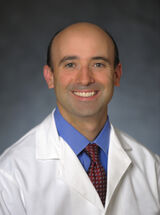
Degrees:
B.S. (Chemistry) Georgetown University, 1992. M.D. (Medicine) University Of Pennsylvania, 1997. M.S.C.E. (Pharmacoepidemiology) University Of Pennsylvania, 2005.
Research Interests:
- Hepatic and non-hepatic outcomes of chronic hepatitis B and C, particularly among patients with HIV infection
- Adherence to hepatitis C virus therapy
- Hepatotoxicity of medications
- Evaluation of clinical outcomes
- Population-based and administrative databases
Clinical Specialties:
Hepatitis B, hepatitis C, hepatitis delta, HIV/viral hepatitis coinfection
Keywords: HIV/viral hepatitis coinfection; hepatitis B; hepatitis C; HIV/AIDS; epidemiology; clinical outcomes; pharmacoepidemiology
Office Address:
Blockley Hall, Rm 836
423 Guardian Drive
Philadelphia, PA 19104
(215) 573-5964
Email
Lo Re Research Group
Mentor Training Completed
Unconscious Bias Trained
Grad Group Affiliations: GGEB (Epidemiology and Biostatistics)
Languages Spoken: English
Michela Locci, PhD
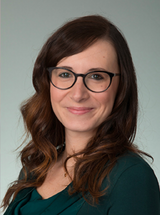
Degrees:
MS (Industrial Biotechnology), University of Bologna, Bologna, Italy, 2005. PhD (Immunology and Applied Biotechnology), Tor Vergata University, Rome, PhD, 2016.
Keywords: T follicular helper cells, Germinal Centers, mRNA vaccines
Glennis Logsdon, PhD

Degrees:
CAMB (Cell and Molecular Biology), GCB (Genomics and Computational Biology), BE (Bioengineering)
Research Interests:
The Logsdon laboratory uses long-read sequencing, innovative computational methods, and synthetic biology approaches to investigate the sequence and structure of regions of the human genome that have remained unresolved for the past two decades. We are particularly interested in the centromeres, which comprise over half of the previously unresolved sequences and are among the most dynamic and rapidly evolving regions in the human genome. Ongoing projects include centromere variation among the human population in both health and disease, centromere evolution over time, and the design and engineering of new centromeres on human artificial chromosomes.
Keywords: Genetics, epigenetics, long-read sequencing, chromosomes, centromeres, aneuploidy, synthetic biology, computational biology, population genetics, evolution
Office Address:
9-133 Smilow Center for Translational Research
3400 Civic Center Blvd.
Philadelphia, PA 19103
Email
Logsdon Lab
Mentor Training Completed
Unconscious Bias Trained
Grad Group Affiliations: CAMB (Cell and Molecular Biology), GCB (Genomics and Computational Biology), BE (Bioengineering)
Languages Spoken: English
Damaris Lorenzo, PhD

Degrees:
BS Biochemistry, University of Havana. PhD Cell Biology, University of Minnesota.
Research Interests:
The long-standing interest of our group is to understand how membrane and cytoskeleton adaptors modulate cellular processes to maintain homeostasis and how their dysregulation leads to disease. We are particularly interested in the role of these adaptors in brain development and bioenergetic regulation. Our research sits at the interface of human genetics, animal physiology, cell biology, and biochemistry. We use mouse, fly, and differentiated human iPSC models to decode the cellular and molecular mechanisms of protein adaptors in normal states and how they are functionally disrupted by pathogenic human variants. Our goal is to translate genetic information into pathophysiologic mechanisms that inform diagnosis and therapeutic approaches. Some of the techniques routinely used by our team include live and high-resolution microscopy, biochemistry, cellular assays, and proteomics, combined with advanced molecular methods, multiple imaging and behavioral modalities, and gene profiling in animal models of disease.
Keywords: Cytoskeleton, membrane adaptors, intracellular transport, axon biology, synapses, neurogenetics, neurobiology of disease, neurodevelopmental disorders, cerebellar disorders, diabetes, bioenergetics, skeletal muscle disorders, mouse models of disease.
Office Address:
Biomedical Research Building II/III
Room 1112
421 Curie Blvd.
Philadelphia, PA 19104
Email
Lorenzo Lab
Mentor Training Completed
Unconscious Bias Trained
Grad Group Affiliations: CAMB (Cell and Molecular Biology), NGG (Neuroscience Graduate Group)
Languages Spoken: Spanish, English
Wenqin Luo, MD, PhD

Degrees:
MD (Medicine) Hunan Medical University, 1996. MS (Molecular Biology And Biochemistry) Peking Union Medical College, 1999. PhD (Neuroscience) Johns Hopkins University School Of Medicine, 2005.
Research Interests:
Development and Function of Mammalian somatosensory system, pathological pain and itch conditions
Keywords: Development, Function, Touch Sensation, pain, itch, DRG, brain, Mouse Genetics, human tissue
Office Address:
Johnson Pavilion, Rm 146
3610 Hamilton Walk
Philadelphia PA, 19104
(215) 573-7281
Email
Luo Lab
Mentor Training Completed
Unconscious Bias Trained
Grad Group Affiliations: CAMB (Cell and Molecular Biology), NGG (Neuroscience Graduate Group)
Languages Spoken: English
Minghong Ma, PhD

Degrees:
B.S. in Biophysics, Peking University, 1988. M.S. in Biophysics, Chinese Academy of Sciences, 1991. Ph.D. in Neurobiology and Behavior, Columbia University, 1997.
Research Interests:
We are interested in how the brain perceives external sensory information and responds appropriately using the mouse olfactory system as a model. Rodents primarily use olfactory cues to guide their behaviors (e.g., locating food, communicating with conspecifics, and avoiding danger). Odor detection relies on a large family (~1200 in mice) of G-protein coupled odorant receptors (ORs) expressed in olfactory sensory neurons (OSNs) in the nose. OSNs transmit sensory information to the olfactory bulb, which relays the information to several olfactory cortical and subcortical regions. Some OSNs serve dual functions as odor detectors and mechanical sensors, thus the olfactory system carries both odor and nasal breathing signals into the brain. Our current investigation focuses on how the olfactory system interacts with non-olfactory regions (e.g., the prefrontal cortex and striatum) to influence the brain activity and behavioral output. Since olfactory dysfunction is manifested in neuropsychiatric and neurodegenerative disorders, we are also interested in analyzing the olfactory system and related circuits in diseased states.
Keywords: Sensory and behavioral neuroscience, neural circuits, respiration, brain rhythms, and olfaction
Office Address:
Johnson Pavilion, 110
3610 Hamilton Walk
Philadelphia PA, 19104
Email
Minghong Lab
Mentor Training Completed
Unconscious Bias Trained
Grad Group Affiliations: CAMB (Cell and Molecular Biology), NGG (Neuroscience Graduate Group), PGG (Pharmacology Graduate Group)
Languages Spoken: English
Ivan Maillard, MD, PhD

Degrees:
BA, Gymnase De Chamblandes, 1986. MD (Medicine), University Of Lausanne And Zurich, 1993. MD-PhD (Medicine) Swiss Academy Of Medical Sciences, 1997.
Research Interests:
My laboratory investigates the regulation of normal and malignant hematopoiesis, bone marrow transplantation and T cell alloimmunity. A central focus of our studies is the role of Notch signaling in T cell development, differentiation and function, as well as in other aspects of hematopoiesis and lymphoid homeostasis. Using mouse models of bone marrow transplantation, we discovered essential functions for Notch receptors and ligands in graft-versus-host disease with a high fundamental and translational impact. We also identified specialized stromal niches that represent the critical sources of Notch ligands in secondary lymphoid organs.
Clinical Specialties:
Hematology/Oncology
Keywords: Hematopoiesis, bone marrow transplantation, T cell immunology, B cell immunology, Notch signaling.
Office Address:
BRB II/III, Rm 451
421 Curie Blvd
Philadelphia, PA 19104
(215) 746-2929
Email
Mentor Training Completed
Unconscious Bias Trained
Grad Group Affiliations: CAMB (Cell and Molecular Biology), IGG (Immunology Graduate Group)
Languages Spoken: English, French, German, Portuguese
Nicola Mason, BVetMed, DACVIM PhD
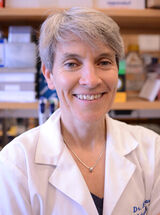
Degrees:
BVetMed (Veterinary Medicine ) University of London , 1992. PhD (Immunology) University of Pennsylvania , 2004.
Research Interests:
Chimeric Antigen Receptor T cells, Chimeric Auto-Antigen Receptor T cells, Adoptive Cell Therapies, Listeria based vaccines, Canine hematopoietic cancers, Canine osteosarcoma, Canine Urothelial Carcinoma, Canine Soft Tissue Sarcomas.
Keywords: Spontaneous models of cancer, Adoptive cell therapies, Chimeric antigen receptor T cells, Allogeneic and xenogenic CAR-T cells, Clinical trials in pet dogs with spontaneous cancer
(215) 898-3996
Email
PennVet Faculty Page
Mentor Training Completed
Grad Group Affiliations: CAMB (Cell and Molecular Biology), IGG (Immunology Graduate Group)
Languages Spoken: English
Robert L. Mauck, PhD

Degrees:
B.A. (Biochemistry) Columbia University, 1998. B.S. (Biomedical Engineering) Columbia University, 1998. MS (Biomedical Engineering) Columbia University, 2000. Ph.D. (Biomedical Engineering) Columbia University, 2003.
Research Interests:
The goals of our research program in soft tissue mechanobiology and tissue engineering are to understand the physiologic and patho-physiologic processes that regulate the formation, maturation, and adult function of soft connective tissues. We believe that such an understanding will better direct our efforts to generate functional tissue replacements and regenerative strategies, with a particular focus on articular cartilage and the knee meniscus. Our program utilizes various mechanical and biological testing modalities, scaffold fabrication techniques, and bioreactor culture conditions to explore these issues in both animal and human model systems.
Keywords: Regenerative Medicine, Musculoskeletal Biology and Bioengineering, Stem Cells, Biomaterials
Kara N. Maxwell, MD, PhD
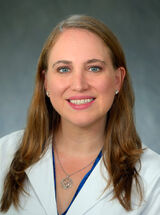
Degrees:
BS (Genetics, Biochemistry) University Of Wisconsin-Madison, 1998. PhD (Molecular And Cellular Biology) Rockefeller University, 2006. MD (Medicine) Weill Cornell Medical College, 2007.
Research Interests:
I am a Medical Oncologist with postdoctoral training in Cancer Genetics and PhD training in molecular and cellular biology. My research interests are in the genetics of human cancer, particularly the mechanisms of breast and prostate tumor formation in patients with inherited mutations in DNA repair genes.
We have two main interests:
1) We leverage my clinical expertise in Li Fraumeni Syndrome to study p53-related breast and prostate cancer development, and to study specific hypomorphic TP53 mutations.
2) I am the Director of the Basser Center for BRCA Men and BRCA Program and Director of the Cancer Genetics Clinic at the Philadelphia VAMC, and we leverage this clinical role to study BRCA-related prostate cancer and to identify novel prostate cancer genes.
Our studies span clinically oriented translational projects to basic science, in genetics, genomics, bioinformatics and cell biology.
Clinical Specialties:
Medical Oncology
Cancer Genetics
Keywords: cancer genetics, cancer genomics, Li Fraumeni Syndrome, TP53, inherited cancer syndromes, bioinformatics, sequencing
Office Address:
BRB II/III, Rm 810
421 Curie Boulevard
Philadelphia PA, 19104
Email
Maxwell Lab
Mentor Training Completed
Unconscious Bias Trained
Grad Group Affiliations: CAMB (Cell and Molecular Biology), GCB (Genomics and Computational Biology)
Languages Spoken: English
Michael J. May, PhD
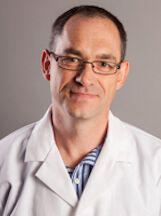
Degrees:
B. Sc. (Immunology) University of Glasgow, UK, 1988. M.Sc. (Immunology) University of Manchester, UK, 1992. Ph.D. (Vascular Biology) King's College London, UK., 1996.
Research Interests:
NF-kB signaling in immunity and inflammation with a primary focus on the role of this pathway in controlling the phenotype and function of vascular and lymphatic endothelial cells.
Keywords: Inflammation, Signaling, NF-kB, Lymphatics, Lymph Nodes, vascular biology
Office Address:
School of Veterinary Medicine, OVH200E
3800 Spruce Street
Philadelphia, PA 19104
(215) 573-0940
Email
PennVet Faculty Page
Mentor Training Completed
Unconscious Bias Trained
Grad Group Affiliations: CAMB (Cell and Molecular Biology), IGG (Immunology Graduate Group)
Languages Spoken: English
Michael C. Milone, MD, PhD
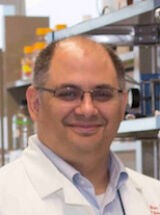
Degrees:
B.S (Chemical Biology) Stevens Institute Of Technology, 1993. M.D. (Medical Doctor) UMDNJ- New Jersey Medical School, 1999. Ph.D (Experimental Pathology/ Immunology) UMDNJ - Graduate School Of Biomedical Sciences, 1999.
Research Interests:
Research in my laboratory is focused on T cell biology and applications of genetically-engineered T cells to the treatment of disease.
Clinical Specialties:
Clinical Pathology
Keywords: T cells, immunology, cancer, gene therapy
Office Address:
Perelman Center for Advanced Medicine, SPE 8-101
3400 Spruce Street
Philadelphia, PA 19104
Email
Mentor Training Completed
Unconscious Bias Trained
Grad Group Affiliations: CAMB (Cell and Molecular Biology), PGG (Pharmacology Graduate Group)
Languages Spoken: English
Jonathan J. Miner, MD, PhD
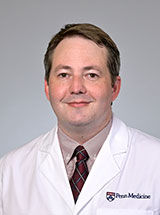
Degrees:
B.S. (Zoology) BYU, 2002. B.A. (Russian) BYU, 2002. Ph.D. (Biochemistry and Molecular Biology) University of Oklahoma, 2008. M.D. (Medicine) University of Oklahoma, 2010.
Research Interests:
The Miner laboratory studies the intersection of autoimmunity and antiviral immunity. This includes studies of rare rheumatic diseases caused by mutations in genes that regulate immune responses to viruses, such as the TREX1, cGAS, STING, RIG-I, and STAT1 genes. The Miner laboratory is also developing novel therapeutics for rare diseases, and is conducting whole-genome CRISPR/Cas9 screens to discover novel regulators of these pathways.
Guo-li Ming, MD, PhD

Degrees:
M.D. (Medicine (OBGYN)) Tongji Medical University, P. R. China, 1994. Ph.D. (Biology) University Of California At San Diego, California, 2002.
Research Interests:
Neurobiology of mental disorders Neural development human induced pluripotent stem cells cell signalling cell and molecular biology.
Keywords: human iPSCs, Neurodevelopment, Psychiatric disorders. brain organoids
Office Address:
Clinical Research Building, 111A
415 Curie Boulevard
Philadelphia PA, 19104
(215) 746-6686
Email
Ming Lab
Unconscious Bias Trained
Grad Group Affiliations: NGG (Neuroscience Graduate Group)
Languages Spoken: English, Chinese
Mustafa Mir, PhD
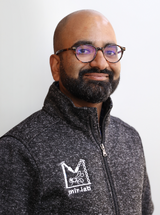
Degrees:
BS, Electrical Engineering, University of Illinois at Urbana-Champaign, 2008. MSc, Electrical Engineering, University of Illinois at Urbana-Champaign, 2010. PhD, Electrical Engineering, University of Illinois at Urbana-Champaign, 2013.
Research Interests:
I am interested in quantifying and manipulating the dynamics of nuclear organization and gene expression during development and in disease. To do so my lab builds and applies advanced light microscopy technologies alongside computational analysis, biophysical modelling, optogenetics, gene editing, and genomics.
Office Address:
9030 Colket Translational Research Building
The Children's Hospital of Philadelphia
3501 Civic Center Boulevard
Email
Mir Lab
Mentor Training Completed
Unconscious Bias Trained
Grad Group Affiliations: DSRB (Developmental Stem Cell and Regenerative Biology)
Languages Spoken: English, Urdu
Ed Morrisey, PhD
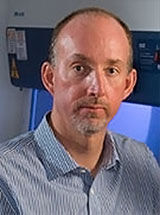
Degrees:
B.S. (Microbiology) University Of Illinois Urbana-Champaign, 1986. Ph.D. (Molecular Biology) Northwestern University, Evanston, IL, 1994.
Research Interests:
The Morrisey Lab is comprised of a group of researchers dedicated to investigating cell fate decisions that occur in the lung during development, tissue homeostasis, and regeneration. We utilize cutting edge technologies including sing cell -omics, novel transgenic mouse models, advanced imaging techniques, and custom bioinformatics platforms to expand our understanding of how the respiratory system responds to acute and chronic disease and injury.
Our lab is composed of a highly collaborative team of graduate students, postdocs, physician-scientists, technicians, staff scientists, and a bioinformatics team. Former Morrisey lab trainees are emerging as the next generation of leaders in pulmonary research and medicine. We invite you to view our webpage and learn more about us.
Keywords: Lung regeneration, lung development, organoid, tissue repair
Office Address:
Smilow Center for Translational Research, Rm 11-124
3400 Civic Center Boulevard
Philadelphia, PA 19104-5129
(215) 573-3010
Email
Morrisey Lab
Mentor Training Completed
Unconscious Bias Trained
Grad Group Affiliations: CAMB (Cell and Molecular Biology)
Languages Spoken: English
Yael P. Mossé, MD
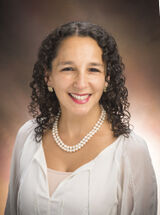
Degrees:
B.A. Hebrew University, Jerusalem, Israel, 1992. B.A. Smith College, 1993. M.D. Sackler School of Medicine, Tel Aviv, Israel, 1997.
Research Interests:
I am a physician-scientist with a focus on neuroblastoma whose lab is built on the principle that childhood cancers are outstanding systems for studying fundamental problems in cancer more generally. We have succeeded both in integrating basic scientific discoveries into clinical applications and in answering important basic science questions raised at the bedside. My work reveals how an interplay between genomic discovery research, mechanistic studies, and development of clinical trials can help advance the management and outcome of individuals with neuroblastoma and other childhood cancers and be translated in real-time into ongoing clinical trials. Our discovery of gain-of-function mutations within the tyrosine kinase domain (TKD) of the Anaplastic Lymphoma Kinase (ALK) gene as the major cause of hereditary neuroblastoma, and the demonstration that these same alterations are the most common somatic single nucleotide mutations in sporadic forms of the disease have positioned ALK as the only mutated oncogene tractable for targeted therapy in neuroblastoma and has served as a paramount example across all pediatric cancers.
The broad scientific questions addressed in my laboratory are: How do childhood cancers evolve under the selective pressure of therapy to identify therapeutic vulnerabilities? Can we cure more children with cancer by integrating biomarker-directed precision therapies to allow reduction of dose-intensive chemotherapy without additional toxicity? Major themes include: i) Discovery of mechanisms of neuroblastoma therapy resistance; ii) Translation of therapeutic strategies to exploit mechanisms of therapy resistance; iii) Development of pediatric-specific tissue and plasma-based diagnostic assays; iv) Development of immuno-oncology strategies for childhood cancers; v) Direct targeting of the MYC(N) oncoprotein and other childhood cancer oncoprotein leveraging targeted protein degradation and an industry collaboration supported by the Cancer Grand Challenges.
Clinical Specialties:
Neuroblastoma and other childhood solid tumors. I run a neuroblastoma developmental therapeutics clinic, a multidisciplinary service dedicated to providing novel and rational treatment options to children with relapsed or refractory disease.
Keywords: Childhood cancer, Neuroblastoma Oncoproteins, Targeted Protein Degradation, CAR T Cell therapy, Antibody Drug Conjugates, Targeted Therapy Mechanisms of therapy resistance, ctDNA profling
Office Address:
3501 Civic Center Blvd
CTRB 9006
Philadelphia, PA 19104
CHOP Profile
Mentor Training Completed
Grad Group Affiliations: CAMB (Cell and Molecular Biology), PGG (Pharmacology Graduate Group)
Languages Spoken: English, French, Hebrew
Ilya Nasrallah, MD, PhD
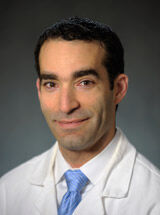
Degrees:
BA Cornell University, 1998. PhD University Of Pennsylvania, 2004. MD University Of Pennsylvania, 2005.
Research Interests:
Development of new PET radiotracers for neurodegenerative disease and neuroinflammation.
Application of quantitative neuroimaging and pattern analysis/machine learning methods to multi site neuroimaging studies to understand mechanisms and phenotypes of brain aging and neurodegenerative disease.
Clinical Specialties:
Radiology and Nuclear Medicine
Keywords: Molecular imaging, PET, MRI, quantitative neuroimaging, machine learning, neurodegenerative disease, Alzheimer's disease, cerebrovascular disease
Audrey R. Odom John, MD, PhD
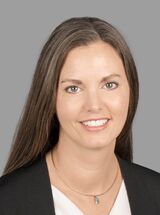
Degrees:
BS (Major Biology/Minor Chemistry), Duke University, 1996. PhD (Biochemistry), Duke University School Of Medicine, 2002. MD, Duke University School Of Medicine, 2003.
Roles:
Chief of Infectious Diseases at CHOP; Penn MSTP, Steering and Admissions Committee.
Research Interests:
Dr. John studies the malaria parasite, Plasmodium falciparum, to understand its basic molecular and cellular biology and functions of its specific metabolic pathways--what the parasite needs to make and why it needs to make it--to identify new antimalarial drug targets and develop new diagnostics. More recently, our work has expanded into new "breathalyzer" diagnostics for pediatric infectious and non-infectious diseases.
Clinical Specialties:
Pediatric Infectious Diseases
Keywords: Microbiology, malaria, Plasmodium, parasitology, SARS-CoV-2, metabolism, drug discovery, diagnostics, breathprinting
Office Address:
Clinical and Translational Research Center, Rm 10006
3400 Civic Center Blvd
Philadelphia, PA 19104
(215) 590-2457
Email
John Laboratory
Mentor Training Completed
Unconscious Bias Trained
Grad Group Affiliations: CAMB (Cell and Molecular Biology)
Languages Spoken: English
Paula M. Oliver, PhD
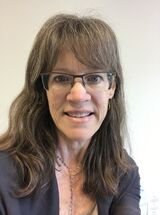
Degrees:
BS (Zoology), North Carolina State University, 1989 PhD (Pathology), University of North Carolina at Chapel Hill, 1998
Research Interests:
Our focus is on defining new mechanisms that regulate immune cell activation and protective immune responses. Our goal is to use this information to design therapies with which to treat the immune-mediated pathologies found in autoimmune and allergic disease.
Keywords: Immune cell function, autoimmune disease, allergy, ubiquitin biology
Office Address:
Children's Hospital of Philadelphia
816F ARC, 3615 Civic Center Blvd.
Philadelphia, PA 19104
Email
Mentor Training Completed
Unconscious Bias Trained
Grad Group Affiliations: CAMB (Cell and Molecular Biology), IGG (Immunology Graduate Group)
Languages Spoken: English
Jennifer L. Orthmann Murphy, MD, PhD
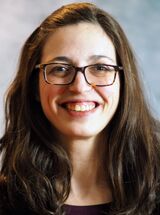
Degrees:
B.A. (Biological Basis Of Behavior With Distinction (History Minor)) University Of Pennsylvania, 2001. Ph.D. (Neuroscience) University Of Pennsylvania Perelman School Of Medicine, 2007. M.D. (Combined Degree Program) University Of Pennsylvania Perelman School Of Medicine, 2010.
Research Interests:
The Orthmann-Murphy laboratory studies the dynamic role of glial cells in acquired and inherited demyelinating disease.
Keywords: Glia, myelin, multiple sclerosis, demyelination, remyelination
Mentor Training Completed
Grad Group Affiliations: NGG (Neuroscience Graduate Group)
Languages Spoken: English
Xilma Ortiz-Gonzalez, MD, PhD

Degrees:
BS (Chemistry) University of Puerto Rico, Cayey, 1997. PhD (Neuroscience) University of Minnesota, 2004. MD (Medicine) Univeristy of Minnesota Medical School, Minneapolis, 2006.
Research Interests:
The Ortiz-Gonzalez lab is interested in pediatric neurodegenerative disorders and how these rare genetic disorders inform our knowledge of neurobiology and pathways critical for maintaining brain health. We focus on the role mitochondrial dysfunction in neurodegenerative phenotypes.
Clinical Specialties:
Pediatric Neurogenetics.
Keywords: Mitochondria, induced pluripotent stem cells, pediatric neurodegeneration
Email
Ortiz-Gonzalez Laboratory
Mentor Training Completed
Unconscious Bias Trained
Grad Group Affiliations: CAMB (Cell and Molecular Biology), NGG (Neuroscience Graduate Group)
Languages Spoken: Spanish, English, Portuguese
Vikram Paralkar, MD
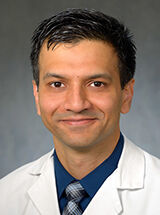
Degrees:
HSC DG Ruparel College, Mumbai, India, 1998. MD Seth GS Medical College, Mumbai, India, 2004.
Research Interests:
The Paralkar Lab seeks to understand how the interplay of transcription factors and chromatin complexes regulates normal and malignant hematopoiesis, specifically hematopoietic stem cells self-renewal, myeloid differentiation, and myeloid leukemogenesis. A particular focus of our group is the regulation of ribosomal RNA and ribosome biogenesis.
Our work spans the spectrum from human patient sample studies and mouse models to cutting-edge molecular biology tools, high-throughput sequencing approaches, and novel computational algorithms.
Clinical Specialties:
Leukemia
Keywords: Hematopoiesis, Leukemia, Epigenetics, Transcription, rDNA, rRNA, Ribosome Biogenesis
Office Address:
BRB II/III
Room 551
421 Curie Boulevard,
Philadelphia, PA 19104
(215) 573-9252
Email
Paralkar Lab
Mentor Training Completed
Unconscious Bias Trained
Grad Group Affiliations: CAMB (Cell and Molecular Biology)
Languages Spoken: English, Hindi, Marathi
Michael Parmacek, MD

Degrees:
B.S. (Biology/Psychology) Tufts University, 1977. M.D. Northwestern University Medical School, 1981.
Research Interests:
Transcriptional programs that regulate cardiovascular development.
Clinical Specialties:
Cardiology
Keywords: Smooth muscle cell, cardiac myocyte, GATA, myocardin, transcription, notch
Office Address:
PCAM South Pavilion, Rm 6-631
3400 Civic Center Blvd.
Philadelphia, PA 19104
Email
Mentor Training Completed
Unconscious Bias Trained
Grad Group Affiliations: CAMB (Cell and Molecular Biology)
Languages Spoken: English
Adriana Petryna, PhD

Degrees:
Ph.D. Anthropology, University of California, Berkeley; M.A. Anthropology & M.Arch., University of California, Berkeley; B.S. Architecture, University of Michigan, Ann Arbor.
Research Interests:
Adriana Petryna is Professor in Anthropology at the University of Pennsylvania. She directs the MD-PhD program in Anthropology and the undergraduate concentration in Medical Anthropology and Global Health. In her ethnographic studies in Eastern Europe and the United States, she probes the socio-political nature of science, how populations are enrolled in experimental knowledge-production, and what becomes of citizenship and ethics in that process. She is the author of the award-winning books, including Life Exposed: Biological Citizens after Chernobyl and When Experiments Travel: Clinical Trials and the Global Search for Human Subjects, and is co-editor of Global Pharmaceuticals: Ethics, Markets, Practices and When People Come First: Critical Studies in Global Health. A recently named Guggenheim Fellow, Petryna's research has been supported by the National Science Foundation, the National Endowment for the Humanities, the Wenner-Gren Foundation, the Social Science Research Council, and the School for Advanced Research. She was a Member of the School of Social Science at the Institute for Advanced Study and a Faculty Fellow at Princeton University's Center for Human Values.
Keywords: Medical anthropology; anthropological theory and methods; humanistic medicine; global health; social studies of science and technology; environmental disaster; clinical trials and medical resource access; pharmaceuticals and global health; United States, Eastern Europe and Eurasia, and Brazil.
Office Address:
University Museum, Rm 334
University of Pennsylvania, School of Arts and Sciences
3260 South Street, Philadelphia, PA 19104
Email
Anthropology Faculty Page
Mentor Training Completed
Unconscious Bias Trained
Grad Group Affiliations: Anthropology
Languages Spoken: English
Jennifer E. Phillips-Cremins, PhD

Degrees:
B.S. (Chemical Engineering) Clarkson University, 1999. Ph.D. (Biomedical Engineering) Georgia Institute Of Technology, 2007.
Research Interests:
The Cremins Lab focuses on higher-order genome folding and how classic epigenetic modifications work through long-range, spatial mechanisms to govern synaptic plasticity in healthy and diseased neural circuits. Much is already known regarding how transcription factors work in the context of the linear genome to regulate brain development. Yet, severe limitations exist in our ability to engineer chromatin in neural circuits to correct synaptic defects in vivo. At the lab's inception, it remained unclear whether and how genome folding could functionally influence cell type-specific gene expression. We have developed and applied new molecular and computational technologies to discover that nested subTADs and long-range loops undergo marked reconfiguration during neural lineage commitment, somatic cell reprogramming, neuronal activity stimulation, and in repeat expansion disorders. We demonstrated that loops induced by neural circuit activation, engineered through synthetic architectural proteins, and miswired in fragile X syndrome were tightly connected to transcription, thus providing early insight into the genome's structure-function relationship. We will now focus on a fundamental mystery in neuroscience: how memory is encoded over decades despite rapid turnover of synaptic proteins/RNAs. We hypothesize that the 3D genome integrates molecular traces of synaptic plasticity written on chromatin to store long-term memory in neural circuits. We will employ single-cell genomics and imaging technologies to dissect how individual synaptic inputs create 3D epigenetic traces. We will perform genome-wide CRISPR screens to identify specific loops and epigenetic modifications important for synaptic plasticity. We will also re-direct technologies used for genome architecture mapping to create molecular activity-dependent neural connectome maps. Finally, we will study how, when, and why pathologic genome misfolding leads to synaptic dysfunction. Addressing this knowledge gap will provide an essential foundation for our long-term goal to engineer the 3D genome to reverse pathologic synaptic defects in debilitating neurological diseases.
Keywords: Higher-order chromatin architecture, 3D genome, synaptic plasticity, genome instability, repeat expansion disorders, neurodegenerative disease, neural connectome, epigenetics
Mentor Training Completed
Unconscious Bias Trained
Grad Group Affiliations: CAMB (Cell and Molecular Biology), GCB (Genomics and Computational Biology), NGG (Neuroscience Graduate Group), BE (Bioengineering)
Paul Planet, MD, PhD
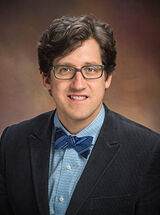
Degrees:
BS (Molecular Biophysics & Biochemistry And Anthropology) Yale University, New Haven, CT, 1996. Ph.D (Integrated Program For Cellular, Molecular, And Biophysical Studies) Columbia University College Of Physicians & Surgeons, New York, NY , 2003. MD Columbia University College Of Physicians & Surgeons, New York, NY, 2004.
Research Interests:
Dr. Planet's research program focuses on the evolution and ecology of infectious disease. His current interests include the evolution and spread of antibiotic resistant strains, particularly community acquired MRSA, and the impact of the pulmonary microbiome in cystic fibrosis. Other organisms studied in teh Planet lab include nontuberculous mycobacteria and Prevotella melaninogenica. Dr. Planet's laboratory uses whole genome phylogenetics, high-throughput sequencing, and bioinformatics to generate hypotheses that are then tested with bench-based microbiology and molecular techniques.
Clinical Specialties:
Pediatric Infectious Disease
Keywords: Microbial Evolution, Phylogenetics, Antimicrobial Resistance, Global Spread of Infectious Disease, Host-Pathogen Interactions, Respiratory Microbiome, Genomics
Office Address:
Abramson Research Center 1202A
3615 Civic Center Blvd
Philadelphia, PA, 19104
Email
Mentor Training Completed
Unconscious Bias Trained
Grad Group Affiliations: CAMB (Cell and Molecular Biology)
Languages Spoken: Spanish, English
Michael Povelones, PhD
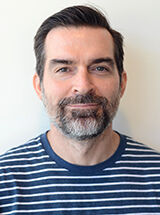
Degrees:
BA (Chemistry) Columbia University, 1995. PhD (Developmental Biology) Stanford University School of Medicine, 2004.
Research Interests:
Host-pathogen interactions, Vector biology, Malaria, Complement, Innate immunity, Filariasis, Parasite adhesion, Kinetoplastid development
Keywords: Host parasite interactions; mosquito; innate immunity; malaria; filariae
Office Address:
School of Veterinary Medicine, Rm 390 ED
3800 Spruce St.
Philadelphia PA, 19104
(215) 898-4144
Email
Povelones Laboratory
Unconscious Bias Trained
Grad Group Affiliations: CAMB (Cell and Molecular Biology), IGG (Immunology Graduate Group), MVP (Microbiology
Languages Spoken: English
Ben Prosser, PhD

Degrees:
BS (Health And Exercise Science) Wake Forest University, 2005. Ph.D (Molecular Medicine) University Of Maryland School Of Medicine, 2009.
Research Interests:
The lab is broadly interested in understanding the role of the cardiac cytoskeleton as a novel target for the treatment of heart disease. A second arm of the lab, inspired by Dr. Prosser's daughter, is focused on genetic neurodevelopmental disorders, and designing RNA-based therapeutics for their treatment.
Keywords: Cardiac physiology; cytoskeleton; heart failure; neurodevelopmental disorders; RNA therapeutics
(215) 746-1488
Email
Prosser Lab
Unconscious Bias Trained
Grad Group Affiliations: CAMB (Cell and Molecular Biology), BMB (Biology and Molecular Biophysics)
Languages Spoken: English
Daniel J. Rader, MD

Degrees:
BA, Lehigh University, 1981. MD, Medical College Of Pennsylvania, 1984.
Research Interests:
Our laboratory is focused on: 1) human genetics to identify novel genes and pathways involved in cardiometabolic diseases and traits; 2) experimental approaches to understanding the mechanisms by which these genes and pathways influence these phenotypes; 3) translational therapeutics for cardio metabolic diseases; 4) implementation science regarding the application of genomic medicine approaches in clinical practice. A variety of computational genomics methods, basic cell and molecular laboratory techniques, mouse models, and translational research approaches are used in addressing these questions.
Clinical Specialties:
I see patients with lipid disorders, including extreme high and low cholesterol, triglycerides, and HDL cholesterol, familial lipodystrophy, other inherited disorders of lipid metabolism, and premature atherosclerotic cardiovascular disease.
Keywords: Human genetics, metabolism, lipids, lipoproteins, cardiovascular disease, translational science
Office Address:
Smilow Center for Translational Research, Rm 11-125
3400 Civic Center Blvd.
Philadelphia, PA 19104
(215) 573-4176
Email
Mentor Training Completed
Unconscious Bias Trained
Grad Group Affiliations: CAMB (Cell and Molecular Biology), GCB (Genomics and Computational Biology), PGG (Pharmacology Graduate Group)
Languages Spoken: English
David Raizen, MD, PhD
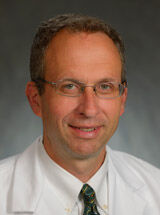
Degrees:
BA (Biochemistry) University of Texas at Austin, 1989. PhD (Neuroscience) University of Texas Southwestern, 1997. MD (Medicine) University of Texas Southwestern, 1997.
Research Interests:
(1) The regulation and function of sleep
(2) Mechanism of fatigue during sickness
Clinical Specialties:
Neurology and Sleep Medicine
Keywords: Sleep, ecdysis, molting, behavior, amyloid, neuropeptides, wake, fatigue, sickness
Office Address:
Clinical Research Building, Rm 347B
415 Curie Blvd.
Philadelphia, PA 19104
Email
Raizen Lab
Unconscious Bias Trained
Grad Group Affiliations: CAMB (Cell and Molecular Biology), NGG (Neuroscience Graduate Group)
Languages Spoken: English
Arjun Raj, PhD
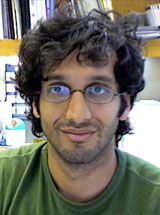
Degrees:
BA (Physics And Mathematics) University Of California, Berkeley, 2000. PhD (Mathematics) Courant Institute Of Mathematical Sciences, New York University, 2006.
Research Interests:
Single cell, systems biology, cancer, development.
Keywords: Single cell, systems biology, cancer, development
Email
Raj Lab for Systems Biology
Mentor Training Completed
Grad Group Affiliations: CAMB (Cell and Molecular Biology), GCB (Genomics and Computational Biology), BMB (Biology and Molecular Biophysics), BE (Bioengineering)
Languages Spoken: English
Peter Reese, MD, MSCE

Degrees:
B.A. (Anthropology) Princeton University, 1993. (Post-Baccalaureate Year) University Of Washington, 1994. M.D. Johns Hopkins University School Of Medicine, 1999. M.S.C.E. University Of Pennsylvania, 2007.
Research Interests:
His research focuses on: a) developing effective strategies to increase access to kidney transplantation, b) improving the process of selecting and caring for live kidney donors, c) determining outcomes of health policies on vulnerable populations with renal disease, including the elderly, and d) testing strategies to improve important health behaviors such as medication adherence.
Marylyn Ritchie, PhD

Degrees:
BS (Biology) University Of Pittsburgh At Johnstown, 1999. MS (Applied Statistics) Vanderbilt University, 2002. PhD (Statistical Genetics) Vanderbilt University, 2004.
Research Interests:
Computational Genomics; Bioinformatics; Epistasis; Pharmacogenomics; Big Data; Evolutionary Computation; Genetic Epidemiology; Statistical Genetics; Systems Genomics; Computational Biology; Translational Informatics; Cardiovascular Disease
Keywords: translational bioinformatics, pharmacogenomics, human genetics
Office Address:
Richards Medical Research Laboratory, A301
3700 Hamilton Walk
Philadelphia PA, 19104
Email
Ritchie Lab
Mentor Training Completed
Unconscious Bias Trained
Grad Group Affiliations: CAMB (Cell and Molecular Biology), GCB (Genomics and Computational Biology)
Languages Spoken: English
Erle S. Roberston, Ph.D.
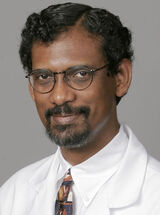
Degrees:
B.Sc. (Microbiology), Howard University, Washington, DC, Dean's List For Entire Period, 1987. PhD (Microbiology And Molecular Genetics), Wayne State University, Detroit, MI Mentor: Allan Nicholson, Ph.D., 1992. MS (Honorary Masters), University Of Pennsylvania, 2003.
Research Interests:
Mechanisms of Viral Associated Cancers.
Keywords: oncogenesis, viruses and cancer, viral oncology, Tumor Virology, Gene therapy, Kaposi's Sarcoma, Epstein-Barr Virus, Lymphoproliferative disease, Lymphomas, Microbiome and Cancer.
Mentor Training Completed
Unconscious Bias Trained
Grad Group Affiliations: CAMB (Cell and Molecular Biology)
Languages Spoken: English
Theodore D. Satterthwaite, MD, MA
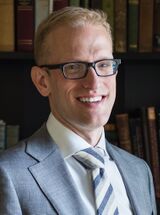
Degrees:
B.A. (Psychology: Neuroscience) Williams College, 2000. M.A. (Biology: Neuroscience) Washington University in St. Louis, 2006. M.D. (Medicine) Washington University in St. Louis, 2006.
Research Interests:
My research uses multi-modal neuroimaging to describe both normal and abnormal patterns of brain development, in order to better understand the origins of neuropsychiatric illness. To do this, we use large-scale neuroimaging datasets, with an emphasis on neuroinformatics, network science, and machine learning.
Clinical Specialties:
Psychiatry
Keywords: Neuroimaging, brain development, network science, adolesence, psychiatric neuroscience, neuroinformatics
Office Address:
Richards Medical Laboratories, A509
3700 Hamilton Walk
Philadelphia PA, 19104
Email
Lifespan Informatics & Neuroimaging Center
Mentor Training Completed
Unconscious Bias Trained
Grad Group Affiliations: NGG (Neuroscience Graduate Group)
Languages Spoken: English
Carla Scanzello, MD, PhD
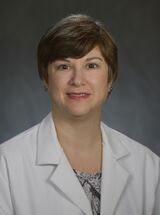
Degrees:
B.S. (Biochemistry) University Of Delaware, Newark, DE, 1991. M.D. Temple University, School Of Medicine, Philadelphia, PA, 2001. Ph.D (Immunology & Microbiology) Temple University, School Of Medicine, Philadelphia, PA, 2001.
Research Interests:
My research focuses on understanding the stimuli and clinical consequences of innate immune system activation in knee osteoarthritis (OA). We have taken a bedside-to bench approach to focus our preclinical work on mechanisms relevant to human disease. Our lab has identified several inflammatory pathways and mediators associated with synovial pathology, macrophage activation, and pain in patients with early-stage OA, including chemokine and Toll-like receptor mediated pathways. We now explore a functional role for these pathways on structural and symptomatic outcomes in pre-clinical models, employing behavioral measures of joint pain and function in preclinical models of joint injury and arthritis. I anticipate that these investigations will be applicable not only to OA, but to a broad range of musculoskeletal disorders characterized by tissue injury, chronic inflammation and pain, allowing us to develop novel targeted anti-inflammatory arthritis therapies.
Clinical Specialties:
Rheumatology
Keywords: Osteoarthritis, synovitis, inflammation, fibrosis, toll-like receptors, innate immunity, chemokines
Office Address:
Corp. Michael J. Crescenz VA Medical Center
3900 Woodland Ave.
Bldg 21, Rm A215
Philadelphia, PA 19104
(215) 823-5800 x205666
Email
Scanzello Laboratory for Osteoarthritis Research
Unconscious Bias Trained
Grad Group Affiliations: IGG (Immunology Graduate Group), BE (Bioengineering)
Languages Spoken: English
Mitch Schnall, MD, PhD
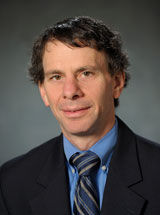
Degrees:
B.S. (Physics) University of Pennsylvania, 1981. M.D. University of Pennsylvania, 1986. Ph.D. (Biophysics) University of Pennsylvania, 1986.
Research Interests:
My research focuses on the application of innovative imaging approaches to cancer diagnosis and treatment. My specific expertise is in the development of now approaches to MRI signal acquisition and analysis.
Clinical Specialties:
Body Imaging/Radiology
Keywords: Imaging, cancer
Office Address:
Department of Radiology
1 Silverstein Pavilion
3400 Spruce Street
(215) 200-2189
Email
Mentor Training Completed
Unconscious Bias Trained
Grad Group Affiliations: BE (Bioengineering)
Languages Spoken: English
Patrick Seale, PhD
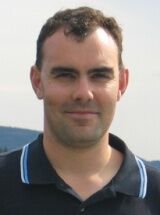
Degrees:
B.Sc. (Biology) McMaster University, Ontario, Canada, 1997. Ph.D. (Biology) McMaster University, Ontario, Canada, 2003.
Research Interests:
1. Obesity pathogenesis, including insulin resistance and susceptibility to type 2 diabetes.
2. Adipose (fat) tissue biology
3. Adipocyte development
4. Mesenchymal stem cells and fibrosis responses.
Keywords: Stem Cells, Embryonic development, Adipocyte progenitors, Obesity, Type 2 diabetes, Brown adipose tissue, White adipose tissue, Mesenchymal stem cells, PRDM16, PPARgamma
Amita Sehgal, PhD
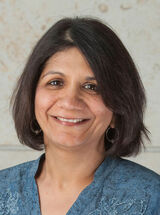
Degrees:
B.S. Delhi University, New Delhi, India, 1980. M.S. Jawaharlal Nehru University, New Delhi, India, 1982. Ph.D. (Cell Biology And Genetics, Adviser: Moses Chao) Graduate School Of Medical Sciences, Cornell University, 1988.
Research Interests:
Molecular basis of behavior.
Keywords: Circadian rhythms, sleep, genetics, metabolism, aging
Office Address:
Smilow Center for Translational Research, 10-135
3400 Civic Center Boulevard
Philadelphia PA, 19104
Email
Sehgal Lab
Mentor Training Completed
Unconscious Bias Trained
Grad Group Affiliations: CAMB (Cell and Molecular Biology), NGG (Neuroscience Graduate Group), PGG (Pharmacology Graduate Group)
Languages Spoken: English, Hindi
Mark Sellmyer, MD, PhD
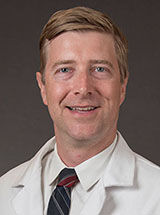
Degrees:
BS (Chemistry) Massachusetts Institute Of Technology , 2004. PhD (Chemical And Systems Biology) Stanford Medical School, 2012. MD Stanford Medical School, 2012.
Research Interests:
Molecular Imaging; Chemical Biology; Synthetic Biology; Radiology; Nuclear Imaging and Therapy
Clinical Specialties:
Nuclear Radiology
Office Address:
Stellar-Chance Labs,
813A (Office), 815 (Lab)
422 Curie Boulevard
Philadelphia PA, 19104
(215) 573-3212
Email
Sellmyer Lab
Mentor Training Completed
Unconscious Bias Trained
Grad Group Affiliations: BMB (Biology and Molecular Biophysics), PGG (Pharmacology Graduate Group), BE (Bioengineering)
Languages Spoken: English
Sydney M. Shaffer, MD, PhD
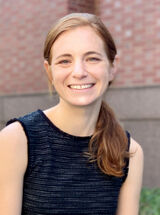
Degrees:
B.S. (Chemical And Biomolecular Engineering) Georgia Institute Of Technology , 2010. Ph.D. (Bioengineering) University Of Pennsylvania, 2017. M.D. (Medicine) Perelman School Of Medicine, University Of Pennsylvania, 2018.
Keywords: Systems biology, cancer systems biology, single-cell analysis
Mentor Training Completed
Unconscious Bias Trained
Grad Group Affiliations: CAMB (Cell and Molecular Biology), BMB (Biology and Molecular Biophysics), BE (Bioengineering)
Languages Spoken: English
Ophir Shalem, PhD
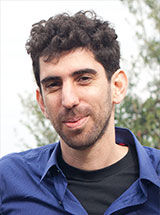
Degrees:
B.Sc. (Computer Science And Biology, Bioinformatics Track In The Computer Science Department) Ben Gurion University Of The Negev, Beer Sheva, Israel, 2004. M.Sc. (Bioinformatics, Advisors: Tzachi Pilpel And Eran Segal) The Weizmann Institue Of Science, 2007. Ph.D. (Biology And Computer Science, Advisors: Tzachi Pilpel And Eran Segal) The Weizmann Institue Of Science, 2012.
Research Interests:
Our lab is interested in functional genomics, approaches that are aimed at understanding gene function by following the effects of direct perturbations at a large scale, we are developing novel perturbation and functional genomics approaches and applying them together with additional genomics approaches to study a range of human diseases including early and late onset neurodegenerative diseases.
Keywords: Functional genomics, protein quality control
Mentor Training Completed
Unconscious Bias Trained
Grad Group Affiliations: CAMB (Cell and Molecular Biology), GCB (Genomics and Computational Biology), NGG (Neuroscience Graduate Group)
Languages Spoken: English
Junwei Shi, PhD

Degrees:
B.S. (Biotechnology) Sun Yat-Sen University (China), 2008. Ph.D. (Molecular And Cellular Biology) Stony Brook University, SUNY, 2016.
Research Interests:
We have a wide range of interests, but we primarily focus on the molecular biology of cancer using CRISPR gene editing technology.
Keywords: CRISPR, acute myeloid leukemia, epigenetics, transcription regulation, gene editing, high-throughput screening
Office Address:
BRB II/III, Rm 610
421 Curie Blvd.
Philadelphia, PA 19104
Email
Shi Lab
Mentor Training Completed
Unconscious Bias Trained
Grad Group Affiliations: CAMB (Cell and Molecular Biology), IGG (Immunology Graduate Group), PGG (Pharmacology Graduate Group), BE (Bioengineering)
Languages Spoken: English
Sunny Shin, PhD

Degrees:
B.S. (Biology, Advisor: Hidde Ploegh) Massachusetts Institute of Technology, 1998. Ph.D. (Microbiology and Immunology, Advisor: Yueh-hsiu Chien) Stanford University School of Medicine, 2004.
Research Interests:
Our research is focused on understanding mechanisms of immune defense against bacterial pathogens, including Legionella pneumophila, Coxiella burnetii, Salmonella Typhimurium, and Yersinia spp., and in turn, how these pathogens subvert host immunity.
Keywords: Innate immunity; bacterial pathogenesis
Office Address:
Johnson Pavilion, 201B
3610 Hamilton Walk
Philadelphia PA, 19104
(215) 746-8410
Email
Microbiology Faculty Page
Mentor Training Completed
Unconscious Bias Trained
Grad Group Affiliations: CAMB (Cell and Molecular Biology), IGG (Immunology Graduate Group), PGG (Pharmacology Graduate Group)
Languages Spoken: English
Michael Silverman, MD, PhD

Degrees:
BS (Biology) Cornell University, 1998. MD, PhD (Medicine And Immunology) University Of Pennsylvania School Of Medicine, 2007.
Research Interests:
The Silverman Lab aims to understand the mechanisms of immune system variation and to discover novel approaches to predict and prevent immune-mediated diseases, specifically the microbial and developmental factors that lead to T1D. Current research studies in the lab involve the genetic and microbiota impacts on T1D; pediatric gnotobiotic mouse model; and selective IgA deficiency (SIgAD).
Specifically, transgenic expression of the MHCII E molecule in NOD mice (Eα16/NOD)completely prevents T1D, mirroring dominant HLA protection from T1D in humans. Using these Eα16/NOD mice as a model of dominant genetic protection from T1D, the Silverman Lab demonstrated that protection from autoimmunity operates by the immune system shaping the early-life commensal microbiota. The lab's ongoing project in this area aims to discover the mechanisms by which the host immune system impacts the development of commensal microbiota, and further, how commensal microbes educate the immune system to prevent autoimmunity. Modeling of HLA class II dominant protection from T1D supports the lab's long-term goal of developing early-life microbiota-based therapies to prevent T1D in humans
The Silverman Lab has collaborated with Paul Planet, MD, PhD, attending physician in the Division of Infectious Diseases at CHOP, to generate the first gnotobiotic mouse model of the pediatric microbiome, which we call Pediatric Community or "PedsCom." PedsCom is a consortium of 8 bacterial strains isolated from the intestine of pre-weaning diabetes-protected Eα16/NOD mice. These mice are unique and powerful tools to define the "rules of engagement" between the host and their commensal microbes.
Finally, the lab has recently defined the microbiome from pediatric patents lacking IgA. The team's ongoing research aims to determine the mechanism for the increased incidence of autoimmune disease in patients with SIgAD. The lab developed a technique (mFLOW-SEQ) to tag microbes with a patient's own serum IgG antibodies followed by metagenomic sequencing to define those microbes which activate, and in some cases, over-activate their immune systems.
Clinical Specialties:
Pediatric infectious disease
Keywords: Microbiome, Immunology, HLA, MHC, antibiotics, intestinal immune system, autoimmune (type I) diabetes, IgA deficiency, Graft-vs-host disease
Office Address:
Abramson Research Center, 1205G
3615 Civic Center Blvd
Philadelphia, PA, 19104
Email
Silverman Laboratory
Mentor Training Completed
Unconscious Bias Trained
Grad Group Affiliations: CAMB (Cell and Molecular Biology), IGG (Immunology Graduate Group)
Languages Spoken: English
M. Celeste Simon, PhD

Degrees:
B.A. (Microbiology) Miami University, 1977. M.S. (Microbiology) Ohio State University, 1980. Ph.D. (Molecular Biology) The Rockefeller University, 1985.
Research Interests:
Our laboratory studies cancer cell metabolism, tumor immunology, metastasis, and cellular responses to oxygen deprivation.
Keywords: Hypoxia; cancer metabolism; immunology; metastasis; in vivo and ex vivo models of pancreatic, liver, and renal cancer; and sarcoma.
Office Address:
BRB II/III, 456
421 Curie Blvd.
Philadelphia, PA 19104
(215) 746-5532
Email
Faculty Listing
Mentor Training Completed
Unconscious Bias Trained
Grad Group Affiliations: CAMB (Cell and Molecular Biology)
Languages Spoken: English
Hongjun Song, PhD
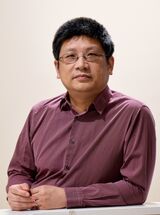
Degrees:
B.S. (Biology) Peking University, P.R. China, 1992. MA, M Phil (Biology) Columbia University, New York, 1995. Ph.D. (Biology) University Of California At San Diego, La Jolla, 1998.
Research Interests:
Research in Dr. Hongjun Song's laboratory focuses on three core topics: (1) neural stem cell regulation and neurogenesis in the developing and adult mammalian brain and how these processes affect neural function; (2) epigenetic and epitranscriptomic mechanisms and their functions in the mammalian nervous system; (3) Biology and potential treatment of glioblastoma using a patient-derived tumor organoid model. The lab is also interested in addressing how dysfunction of these mechanisms may be involved in brain disorders. We are using both mouse model in vivo and patient iPSC-derived 2D cultures and 3D brain organoids for our studies.
Keywords: neural development, neural stem cells, epigenetics, RNA modifications, brain organoids, brain disorders
Office Address:
Clinical Research Building, 111B
415 Curie Boulevard
Philadelphia PA, 19104
(215) 573-2449
Email
Song Lab
Mentor Training Completed
Unconscious Bias Trained
Grad Group Affiliations: CAMB (Cell and Molecular Biology), BMB (Biology and Molecular Biophysics), NGG (Neuroscience Graduate Group)
Languages Spoken: English
Louis Soslowsky, PhD

Degrees:
Diploma East Brunswick High School , 1982. B.S. (Engineering Mechanics) Columbia University, 1986. M.S. (Engineering Mechanics) Columbia University, 1987. M.Phil Columbia University, 1989. Ph.D. (Engineering Mech./Biomechanics, Mentor: Van C. Mow) Columbia University, 1991. Cert. (Academic Medicine Leadership Program) Wharton School Of The University Of Pennsylvania , 2008.
Research Interests:
Orthopaedic research, orthopaedic biomechanics and tissue engineering, tendons and ligaments, shoulder and elbow
Clinical Specialties:
The overall goals of our research program are to determine fundamental relationships and mechanisms of tendon and ligament injury, healing, repair, and regeneration and to use this information to develop and evaluate potential treatment modalities.
Keywords: Orthopaedic research, orthopaedic biomechanics and tissue engineering, tendons and ligaments, rotator cuff, Achilles
Office Address:
Stemmler Hall, 307A
3450 Hamilton Walk
Philadelphia PA, 19104
Email
Soslowsky Lab
Mentor Training Completed
Unconscious Bias Trained
Grad Group Affiliations: BE (Bioengineering), MEAM (Mechanical Engineering and Applied Mechanics)
Languages Spoken: English
Nancy A. Speck, PhD
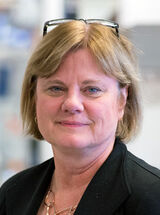
Degrees:
B.A. Western Maryland College, Westminster, MD, 1977. Ph.D. Northwestern University, Evanston IL, 1983.
Research Interests:
Hematopoietic stem cells and leukemia using mouse models.
Keywords: Hematopoietic stem cells, leukemia, core binding factors, transcription, small molecule inhibitors
Ben Stanger, MD, PhD
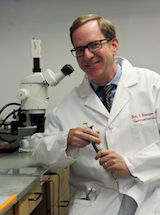
Degrees:
SB (Life Sciences) Massachusetts Institute Of Technology, 1988. MD (Medicine) Harvard Medical School, 1997. PhD (Genetics) Harvard Medical School, 1997.
Research Interests:
Metastasis, Pancreatic Cancer, Tumor Immunology, Cell Plasticity.
Clinical Specialties:
Gastroenterology.
Keywords: Cell Plasticity; Pancreatic Cancer; Tumor Immunology; Metastasis; Liver Regeneration
Office Address:
BRB II/III, 512
421 Curie Blvd
Philadelphia, PA 19104
Email
BGS Faculty Profile
Mentor Training Completed
Unconscious Bias Trained
Grad Group Affiliations: CAMB (Cell and Molecular Biology)
Languages Spoken: English
Boris Striepen, PhD
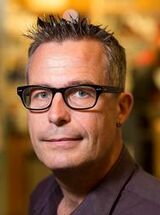
Degrees:
PhD (Biochemistry, Cell Biology and Genetics) Philipps-Universität, Marburg, Germany, 1995.
Research Interests:
We study the cell and molecular biology of parasites and how they interact with their mammalian host.
In recent years we have focused on the apicomplexan Cryptosporidium, a distant cousin to the parasite that cause malaria. Cryptosporidium is an important pathogen for which neither prophylaxis nor effective treatment are available. Cryptosporidium was first recognized in the 1980s as an AIDS-defining opportunistic infection, however, immunocompetent individuals are susceptible, and today Cryptosporidium accounts for 50% of all U.S. waterborne disease outbreaks.
Most recently, Cryptosporidium was identified as a leading cause of diarrheal disease and death in infants. Beyond acute disease, asymptomatic cryptosporidiosis causes stunting and environmental enteropathy with lasting impact on the development and health of children. Malnutrition and cryptosporidiosis are intimately linked. Cryptosporidium has long been difficult to study, but a series of recent advances has made the organism and the disease tractable. We developed genetic manipulation of the parasite and mouse infection models which has opened this important pathogen to sophisticated mechanistic studies.
Currently our research is exploring three areas of Cryptosporidium biology: 1) how does the parasite invade and manipulate the intestinal epithelial cells in which it develops, 2) how does the sexual part of the parasite’s lifecycle unfold and 3) how does the host immune system recognize and restrict Cryptosporidium infection?
Trainees in the lab use a broad range of modern approaches including single cell sequencing, super-resolution and live-cell microscopy, genetic engineering, flow cytometry, cryo-electron tomography and a variety of cell, organoid and animal model systems.
Mentor Training Completed
Grad Group Affiliations: CAMB (Cell and Molecular Biology), IGG (Immunology Graduate Group)
Languages Spoken: English
Kai Tan, PhD
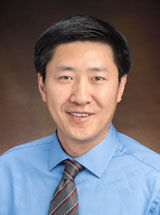
Degrees:
B.S. (Biochemistry) Beloit College, 1997. Ph.D. (Computational Biology) Washington University In St. Louis, 2004.
Research Interests:
Gene regulation plays a fundamental role in cellular development and cancer. Our lab uses genomics and systems biology approaches to understand the gene regulatory factors underlying cellular processes. We take snapshots of the regulatory systems using bulk and single-cell omics and imaging assays, and develop computational algorithms to integrate data and generate testable models of gene regulatory pathways in model systems.
Keywords: Systems biology, cancer genomics, immunotherapy, single-cell biology, computational biology
Office Address:
Colket Translational Research Building, 4004
3501 Civic Center Blvd
Philadelphia, PA 19104
(267) 425-0050
Email
Tan Laboratory
Unconscious Bias Trained
Grad Group Affiliations: CAMB (Cell and Molecular Biology), GCB (Genomics and Computational Biology), GGEB (Epidemiology and Biostatistics), IGG (Immunology Graduate Group), PGG (Pharmacology Graduate Group), BE (Bioengineering), AMCS (Applied Mathematics and Computational Science)
Languages Spoken: English
Christoph Thaiss, PhD, MSc

Degrees:
B.S. University of Bonn, Germany. M.S. Yale University & Swiss Federal Institute of Technology (ETH) Zurich, Switzerland. Ph.D. (Immunology) Weizmann Institute of Science, Rehovot, Israel, 2017.
Research Interests:
We study the impact of environmental factors (the "exposome") on human disease, including inflammatory, metabolic, and neurological diseases.
Keywords: Microbiome, neuroscience, immunology, gut-brain axis, metabolism
Office Address:
Johnson Pavilion, 301B
3610 Hamilton Walk
Philadelphia, PA 19104
Email
Thaiss Lab
Mentor Training Completed
Unconscious Bias Trained
Grad Group Affiliations: CAMB (Cell and Molecular Biology), GCB (Genomics and Computational Biology), IGG (Immunology Graduate Group), NGG (Neuroscience Graduate Group)
Languages Spoken: English
Deborah A. Thomas, PhD

Roles:
R. Jean Brownlee Professor of Anthropology
Research Interests:
Political Anthropology; Sovereignty; Violence; The Afterlives of Imperialism; Transnationalism and Diaspora; Race and Gender; Performance and Popular Culture; Culture and Political Economy; Popular Culture; the Caribbean.
Keywords: Caribbean, Multi-Modality, Anthropology
Office Address:
Penn Museum, 335
3260 South Street
Philadelphia, PA 19104
(215) 746-0435
Email
Center for Experimental Ethnography
Unconscious Bias Trained
Grad Group Affiliations: English, Comparative Literature
Languages Spoken: English, French, Portuguese
Paul Titchenell, PhD
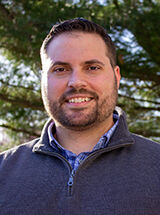
Degrees:
B.S. (Biochemistry And Molecular Biology) Dickinson College, 2008. Ph.D. (Physiology) Pennsylvania State University, 2013. Description of Research Expertise
Research Interests:
The Titchenell lab is focused on understanding how hormones and nutrients regulate metabolism with the goal of identifying new therapeutic targets and approaches to treat metabolic diseases such as diabetes, obesity and cancer. Specifically, my laboratory focuses on insulin action and the molecular mechanisms of insulin resistance with a particular focus on liver, adipose and skeletal muscle metabolism. We employ a host of cutting-edge technologies in biochemistry, molecular biology and organismal physiology to address these fundamental questions in biology.
Keywords: Diabetes, metabolism, insulin, muscle physiology, liver biology
Office Address:
Smilow Center for Translational Research, 12-104
3400 Civic Center Blvd, Building 421
Philadelphia, PA 19104-5160
(215) 573-1872
Email
Titchenell Lab
Mentor Training Completed
Unconscious Bias Trained
Grad Group Affiliations: CAMB (Cell and Molecular Biology), BMB (Biology and Molecular Biophysics), PGG (Pharmacology Graduate Group)
Languages Spoken: English
Andrew Tsourkas, PhD, MS

Degrees:
B.S. (Mechanical Engineering) Cornell University, 1997. M.S. (Mechanical Engineering) Johns Hopkins University, 1999. Ph.D. (Biomedical Engineering) Georgia Institute Of Technology/Emory University, 2004.
Research Interests:
Developing targeted imaging and therapeutic agents designed to improve the detection and treatment of cancer. Specific research interests include (i) developing new nanoformulations that are capable of carrying extremely high payloads of drugs, radiosensitizing agents, and/or contrast agents; (ii) investigating new targeting strategies that maximize specificity and sensitivity; and (iii) developing new bioconjugation techniques that enable the highly efficient, site-specific labeling of antibodies and other targeting ligands.
Keywords: Nanoparticles, protein engineering, antibody conjugates, bispecific antibodies, image-guided surgery, intra-operative therapy, bioconjugate chemistry, molecular imaging, contrast agents
Office Address:
Hayden Hall, 110
3320 Smith Walk
Philadelphia PA, 19104
(215) 898-8167
Email
Tsourkas Lab
Mentor Training Completed
Unconscious Bias Trained
Grad Group Affiliations: CAMB (Cell and Molecular Biology), BMB (Biology and Molecular Biophysics), PGG (Pharmacology Graduate Group), GTV (Gene Therapy and Vaccines)
Languages Spoken: English
Gregory D. Van Duyne, PhD

Degrees:
B.S. (Chemistry) Cornell University, 1983. Ph.D. (Biophysical Chemistry) Cornell University, 1988.
Research Interests:
We are interested in understanding on a structural and biochemical level how DNA and RNA molecules are maintained and processed by living cells. In addition to the mechanisms and regulation of genome replication and transcription, this includes processes such as DNA repair, site-specific and homologous recombination, transposition, condensation of chromosomes, chromosome pairing and segregation, and RNA trafficking and splicing. Our approach is to establish three-dimensional models of macromolecular assemblies relating to a particular biological question using X-ray diffraction methods and to then develop mechanistic and functional models that can be tested experimentally.
Office Address:
Stellar-Chance Laboratories, Rm 809
422 Curie Boulevard
Philadelphia PA, 19104
Email
Mentor Training Completed
Unconscious Bias Trained
Grad Group Affiliations: BMB (Biology and Molecular Biophysics)
Languages Spoken: English
Susan W. Volk, VMD, PhD

Degrees:
B.A. University of Pennsylvania College of Arts and Sciences, 1991 V.M.D. University of Pennsylvania, 1995 Ph.D. University of Pennsylvania, 1998 Diplomate, American College of Veterinary Surgeons
Research Interests:
The goals of the Volk laboratory are to understand regulatory mechanisms governing dynamic interactions between cells and their surrounding extracellular matrix in the wound healing-fibrosis-cancer progression triad and to apply this knowledge to develop innovative regenerative and oncologic therapies for veterinary and human patients.
Clinical Specialties:
Small animal surgery.
Keywords: Wound repair and regeneration Extracellular Matrix Scar formation and fibrosis Regenerative medicine Cell-based therapies Tumor microenvironment
Office Address:
University of Pennsylvania School of Veterinary Medicine
312 Hill Pavilion
380 S. University Ave
Philadelphia PA 19104-4539
(215) 898-0635
Email
Volk Laboratory
Mentor Training Completed
Unconscious Bias Trained
Grad Group Affiliations: BE (Bioengineering)
Languages Spoken: English
Robert H. Vonderheide, MD, DPhil
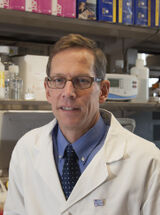
Degrees:
BSc (Chemical Engineering) University Of Notre Dame, 1985. DPhil (Immunology) Oxford University, 1989. MD Harvard Medical School, 1993.
Research Interests:
The Vonderheide laboratory combines efforts in both basic research and clinical investigation to advance the understanding of tumor immunology and to develop novel immunotherapies for cancer. The chief hypothesis is that successful approaches in tumor immunotherapy will need to (a) optimize target antigens with regard to clinical applicability and risk of antigen loss, (b) repair host immuno-incompetence in antigen presentation and T cell function, and (c) circumvent immuno-suppressive factors of the tumor and tumor microenvironment.
Clinical Specialties:
Medical oncology.
Keywords: Tumor immunology, CD40, pancreatic cancer
Office Address:
Smilow Center for Translational Research, 12th Floor
3400 Civic Center Boulevard
Philadelphia PA, 19104
(215) 662-3929
Email
Mentor Training Completed
Unconscious Bias Trained
Grad Group Affiliations: CAMB (Cell and Molecular Biology), IGG (Immunology Graduate Group)
Languages Spoken: English
Douglas C. Wallace, PhD
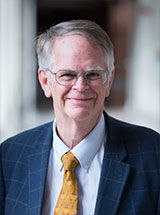
Degrees:
B.S. (Genetics, Developmental Biology) Cornell University, Ithaca, NY, 1968. M. Phil. (Microbiology And Human Genetics) Yale University, New Haven CT, 1972. PhD (Microbiology And Human Genetics) Yale University, New Haven CT, 1975.
Research Interests:
The role of mtDNA and nDNA mitochondrial genetic variation in all aspects of human biology including clinical genetics, neuropsychiatric disoreders, SARS-CoV-2 pathophysiology, cancer, immunology, population biology, animal models, and genetic and metabolic therapeutics.
Keywords: Mitochondria, DNA, mtDNA, epigenome, mitochondrial medicine, SARS-CoV-2 & COVID-19, metabolic and neuropsychiatric diseases including autism, gene therapy, metabolic therapy, mouse models, cancer genetics and immunobiology
Office Address:
Colket Translational Research Building, Rm 6060
Center for Mitochondrial and Epigenomic Medicine
3501 Civic Center Blvd.
Philadelphia, PA 19104
(267) 425-3034
Email
Unconscious Bias Trained
Grad Group Affiliations: CAMB (Cell and Molecular Biology)
Languages Spoken: English
Julia Warren, MD, PhD
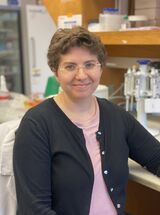
Degrees:
BA (Biological Sciences) University Of Chicago , 2007. MD Washington University In Saint Louis, School Of Medicine , 2015. PhD (Immunology) Washington University In Saint Louis, School Of Medicine, 2015.
Research Interests:
The Warren lab studies normal and malignant hematopoiesis, with a special interest in granulopoiesis. The lab's research aims to understand the pathogenesis of severe congenital neutropenia and other marrow failure syndromes, as well as associated\ risk for malignant transformation.
Clinical Specialties:
Pediatric Hematology/Oncology
Keywords: Hematopoiesis, neutropenia, mitochondria, leukemia, bone marrow failure
Office Address:
Abramson Research Center
3615 Civic Center Dr
Rm 302C
Philadelphia, PA 19104
(215) 590-6189
Email
Mentor Training Completed
Unconscious Bias Trained
Grad Group Affiliations: CAMB (Cell and Molecular Biology), IGG (Immunology Graduate Group), DSRB (Developmental Stem Cell and Regenerative Biology)
Languages Spoken: English
Felix W. Wehrli, PhD
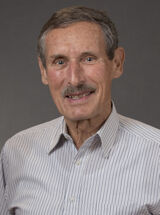
Degrees:
M.S. (Chemistry) Swiss Federal Institute of Technology, Zurich, Switzerland. PhD (Chemistry) Swiss Federal Institute of Technology, Switzerland.
Research Interests:
Quantitative imaging approaches using MRI.
Keywords: Medical Imaging, Translational Research, Quantitative MRI, Musculoskeletal, Oxygen Metabolism, Solid State Imaging
Office Address:
Department of Radiology
1st Floor Founders Building
MRI Education Center
3400 Spruce Street
Philadelphia, PA 19104-4283
(215) 662-7951
Email
Laboratory for Structural Physiologic and Functional Imaging
Unconscious Bias Trained
Grad Group Affiliations: BMB (Biology and Molecular Biophysics), BE (Bioengineering)
Languages Spoken: English, French, Italian, German
David Weiner, PhD

Degrees:
B.S. (Biology) SUNY At Stony Brook, NY, 1978. M.S. (Biology) University Of Cincinnati, Cincinnati, OH, 1985. Ph.D. (Developmental Biology Graduate Program) University Of Cincinnati College Of Medicine, 1986.
Research Interests:
DNA vaccines for infectious diseases or cancers, T cell immunity, Active immunization. Development of novel strategies for invivo biologic production, Self assembly invivo of designed vaccine antigens.
Keywords: Nucleic Acid Vaccines, Rapid Responses to Emerging Infectious Disease, Coronaviruses, HIV, Influenza, AMR, Cancer Immunotherapy, dMABs for treatment, T cells, humoral immunity, Genetic adjuvants.
Office Address:
Wistar Institute, 6th Floor
3601 Spruce Street
Philadelphia, PA 19104
(215) 898-0381
Email
Unconscious Bias Trained
Grad Group Affiliations: CAMB (Cell and Molecular Biology), IGG (Immunology Graduate Group), PGG (Pharmacology Graduate Group), MVP (Microbiology, Virology and Parasitology), GTV (Gene Therapy and Vaccines)
Languages Spoken: English
Susan Weiss, PhD
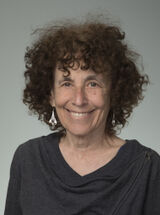
Degrees:
B.A. (Biology) Brandeis University, 1971. Ph.D. (Microbiology And Molecular Genetics) Harvard University, 1975.
Research Interests:
Pathogenesis of human coronaviruses including MERS-CoV, SARS-CoV-2 and nonlethal "seasonal" human respiratory viruses; Infection of primary nasal epithelium with translational applications; Murine coronavirus pathogenesis, central nervous system, liver and lung; Viral innate immune antagonist; Activation and antagonism of the OAS-RNase L pathway- Viral and cellular phosphodiesterases that antagonize RNase L; Zika virus pathogenesis; Endogenous dsRNA induced pathogenesis
Keywords: human respiratory coronaviruses, SARS-CoV-2, MERS-CoV, murine coronavirus,viral pathogenesis, infection of primary nasal epithelium, interferon antagonist, OAS-RNase L, endogenous double-stranded (ds)RNA
Office Address:
Johnson Pavilion, 203A
3610 Hamilton Wak
Philadelphia, PA 19104
(215) 898-8013
Email
Microbiology Faculty Page
Mentor Training Completed
Unconscious Bias Trained
Grad Group Affiliations: CAMB (Cell and Molecular Biology), IGG (Immunology Graduate Group), NGG (Neuroscience Graduate Group)
Languages Spoken: English
Matthew Weitzman, PhD

Degrees:
B.Sc. (Honours Degree In Genetics) University Of Leeds, UK, 1987. Ph.D. (Molecular Virology) Oxford Polytechnic And The Institute Of Virology And Environmental Microbiology Of The Natural Environment Research Council (NERC), Oxford, UK, 1991.
Research Interests:
Our lab aims to understand cellular host responses to virus infection, and the environment encountered and manipulated by viruses. We study multiple viruses in an integrated experimental approach that combines biochemistry, molecular biology, genetics and cell biology. We have chosen viral models that provide tractable systems to investigate the dynamic interplay between viral genetic material and host defense strategies. The pathways illuminated are key to fighting diseases of both viral infection and genome instability, and our studies have significant implications for the development of efficient viral vectors for gene therapy.
Keywords: Virology, Virus Replication, DNA Damage and Repair, Genome Instability, Viral Vectors
Office Address:
Colket Translational Research Building, 4050
3501 Civic Center Blvd
Philadelphia, PA 19104
Email
CHOP Faculty Page
Unconscious Bias Trained
Grad Group Affiliations: CAMB (Cell and Molecular Biology), IGG (Immunology Graduate Group)
Languages Spoken: English, Hebrew
Kathryn Wellen, PhD
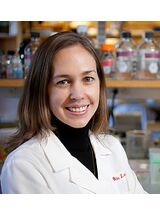
Degrees:
B.S. (Biological Psychology, Summa Cum Laude) The College Of William And Mary, 2000. Ph.D. (Biological Sciences, Genetics & Complex Diseases) Harvard University, School Of Public Health, 2006.
Research Interests:
My lab is studying cellular metabolism, including mechanisms of metabolic adaptation to nutrient availability and mechanisms of metabolic regulation of gene expression in cancer and metabolic disease.
Keywords: Metabolism, cancer, diabetes, acetylation, nutrient-sensing
Office Address:
BRB II/III, Room 653
421 Curie Blvd.
Philadelphia, PA 19104
(215) 746-8599
Email
Wellen Lab
Mentor Training Completed
Unconscious Bias Trained
Grad Group Affiliations: CAMB (Cell and Molecular Biology), BMB (Biology and Molecular Biophysics), NGG (Neuroscience Graduate Group)
Languages Spoken: English
E. John Wherry, PhD

Degrees:
BS (Science) Pennsylvania State University, 1993. PhD (Immunology) Thomas Jefferson University, 2000.
Research Interests:
T Cell Exhaustion, Immunotherapy, T Cell Memory, Viral Immunity, Immune Oncology, Immune Health.
Keywords: T cell exhaustion, PD-1, T cell memory, Chronic infection, Cancer Immunotherapy, Checkpoint Blockade, Memory T cell differentiation, T Follicular Helper Cells.
Mentor Training Completed
Unconscious Bias Trained
Grad Group Affiliations: CAMB (Cell and Molecular Biology), IGG (Immunology Graduate Group), PGG (Pharmacology Graduate Group)
Languages Spoken: English
James Wilson, MD, PhD

Degrees:
B.A. (Chemistry) Albion College, 1977. Ph.D. (Biological Chemistry) University Of Michigan Medical School, 1984. M.D. University Of Michigan Medical School, 1984.
Research Interests:
Dr. Wilson's laboratory focuses on the development of gene transfer vectors and their application in the treatment of inherited and acquired diseases. Characterization of these novel viral isolates has yielded important insights into basic virology. More importantly, recombinant versions of these viruses have proven to be useful as improved gene transfer vehicles to a variety of targets such as the liver, cardiac and skeletal muscle, and the brain.
Keywords: Adeno-associated virus (AAV), gene therapy, gene transfer, gene editing, gene delivery, route of administration.
215-573-9020
Email
Gene Therapy Program
Mentor Training Completed
Unconscious Bias Trained
Grad Group Affiliations: CAMB (Cell and Molecular Biology)
Languages Spoken: English
Walter Witschey, PhD
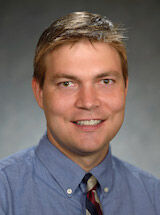
Degrees:
B.S. (Physics) University Of Virginia, 2004. Ph.D (Biochemistry And Molecular Biophysics) University Of Pennsylvania, 2009.
Research Interests:
The research focus of the Advanced Cardiovascular Imaging Lab is the development of next generation imaging technologies for cardiovascular disease. As an interdisciplinary team of Radiologists, Physicists, Computational Scientists, and Engineers, we solve complex problems and develop new tools, to improve our scientific understanding of cardiovascular disease and clinical care of patients.
Keywords: Machine learning, artificial intelligence, magnetic resonance imaging, magnetic resonance spectroscopy, computed tomography, image reconstruction, autonomous systems, cardiovascular disease, metabolic imaging, electrodynamics, computer vision, arrhythmias, ischemia heart disease, heart attack, image-derived phenotypes, bioinformatics
Office Address:
PCAM South Pavilion, 11-155
3400 Civic Center Blvd.
Philadelphia, PA 19104
(215) 662-2310
Email
Advanced Cardiovascular Imaging Lab
Unconscious Bias Trained
Grad Group Affiliations: BMB (Biology and Molecular Biophysics)
Languages Spoken: English
David Wolk, MD
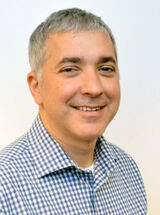
Degrees:
BA (Psychology) Dartmouth College, 1994. MD (Medicine) Johns Hopkins University School Of Medicine, 1998
Research Interests:
Episodic Memory, neuroimaging, MRI, PET imaging, Alzheimer's Disease, Dementia, Memory Disorders, Cognitive Neurology, Aging.
Clinical Specialties:
Cognitive neurology.
Keywords: Alzheimer's disease, Memory, Aging, Medial Temporal Lobe, neuroimaging, amyloid PET, tau PET
(215) 573-7495
Email
Penn Alzheimer's Disease Research Center
Unconscious Bias Trained
Grad Group Affiliations: NGG (Neuroscience Graduate Group), BE (Bioengineering)
Languages Spoken: English
Mark Yim, PhD

Degrees:
BS (Engineering Mechanics) Johns Hopkins University, 1989. MS (Mechanical Engineering) Stanford University, 1989. PhD (Mechanical Engineering) Stanford University, 1995
Roles:
Director of the GRASP Lab
Research Interests:
Steerable needles.
Keywords: Robotics
Email
Modular Robotics Lab (ModLab)
Grad Group Affiliations: BE (Bioengineering), CIS (Computer and Information Science), ESE (Electrical and Systems Engineering), MEAM (Mechanical Engineering and Applied Mechanics)
Languages Spoken: English
Paul Yushkevich, PhD
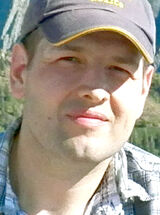
Degrees:
B.S. (Computer Science And Mathematics) University Of North Carolina At Charlotte, 1996. M.S. (Computer Science) University Of North Carolina Chapel Hill, 2000. Ph.D. (Computer Science) University Of North Carolina Chapel Hill, 2003.
Research Interests:
I am a computational biomedical image analysis scientist whose program combines theoretical work on image segmentation, registration, and statistical morphometry with applied and translational research, primarily in the area of brain MRI analysis. I lead a research program focused on using detailed imaging and image analysis of the medial temporal lobe (MTL) to derive effective and informative biomarkers for neurodegenerative diseases. My group is widely recognized one of the leaders in the detailed MTL neuroimaging field, particularly, as the main provider of advanced computational algorithms. Our major research products include the first ex vivo 3D computational atlas of the human hippocampus that combined ex vivo MRI and histology; the best-performing software for hippocampal subfield and MTL subregion segmentation in in vivo MRI (ASHS, in use by ADNI3); winning performance in general image segmentation challenges at MICCAI 2012 and 2013; and the demonstration of the efficacy of MTL subregional measures in detecting granular changes associated with early AD. My group is also heavily invested into open-source software development, including our flagship tool ITK-SNAP, which has tens of thousands of users.
Keywords: Medical image analysis, Alzheimer's disease
Office Address:
Richards Hall, D605
3700 Hamilton Walk
Philadelphia PA 19104
Email
Penn Image Computing and Science Laboratory
Mentor Training Completed
Unconscious Bias Trained
Grad Group Affiliations: BE (Bioengineering)
Languages Spoken: Spanish, English, Russian
Nancy Zhang, PhD

Degrees:
Stanford University, Bachelors in Mathematics, 2001. Stanford University, Masters in Computer Science, 2001. Stanford University, Doctorate of Philosophy in Statistics, 2005.
Research Interests:
Genomics, change-point methods, empirical bayes estimation, model and variable selection, scan statistics, statistical modeling.
Keywords: Genomics, change-point methods, empirical bayes estimation, model and variable selection, scan statistics, statistical modeling
Mentor Training Completed
Unconscious Bias Trained
Grad Group Affiliations: GCB (Genomics and Computational Biology), PNGCB (Penn Neurodegeneration Genomics Center)
Languages Spoken: English, Chinese
Zhaolan (Joe) Zhou, PhH

Degrees:
B.S. (Bioengineering) Nankai University, 1991; Ph.D. (Molecular And Cellular Biology) Harvard University, 2001.
Research Interests:
Genetics and Epigenetic Control of Genome Function in Brain Development and Disease.
Keywords: Epigenetics, Neuroepigenetics, DNA methylation, Chromatin Organization, Genomic Editing, CRISPR, MeCP2, CDKL5, Neurexin, Rett Syndrome, Autism, Major Depression
Office Address:
Department of Genetics
452A Clinical Research Building
415 Curie Blvd
Philadelphia, PA 19104-6145
(215) 746-5025
Email
PSOM Faculty Listing
Mentor Training Completed
Unconscious Bias Trained
Grad Group Affiliations: CAMB (Cell and Molecular Biology), GCB (Genomics and Computational Biology), BMB (Biology and Molecular Biophysics), NGG (Neuroscience Graduate Group), PGG (Pharmacology Graduate Group)
Languages Spoken: English
No Results Found

